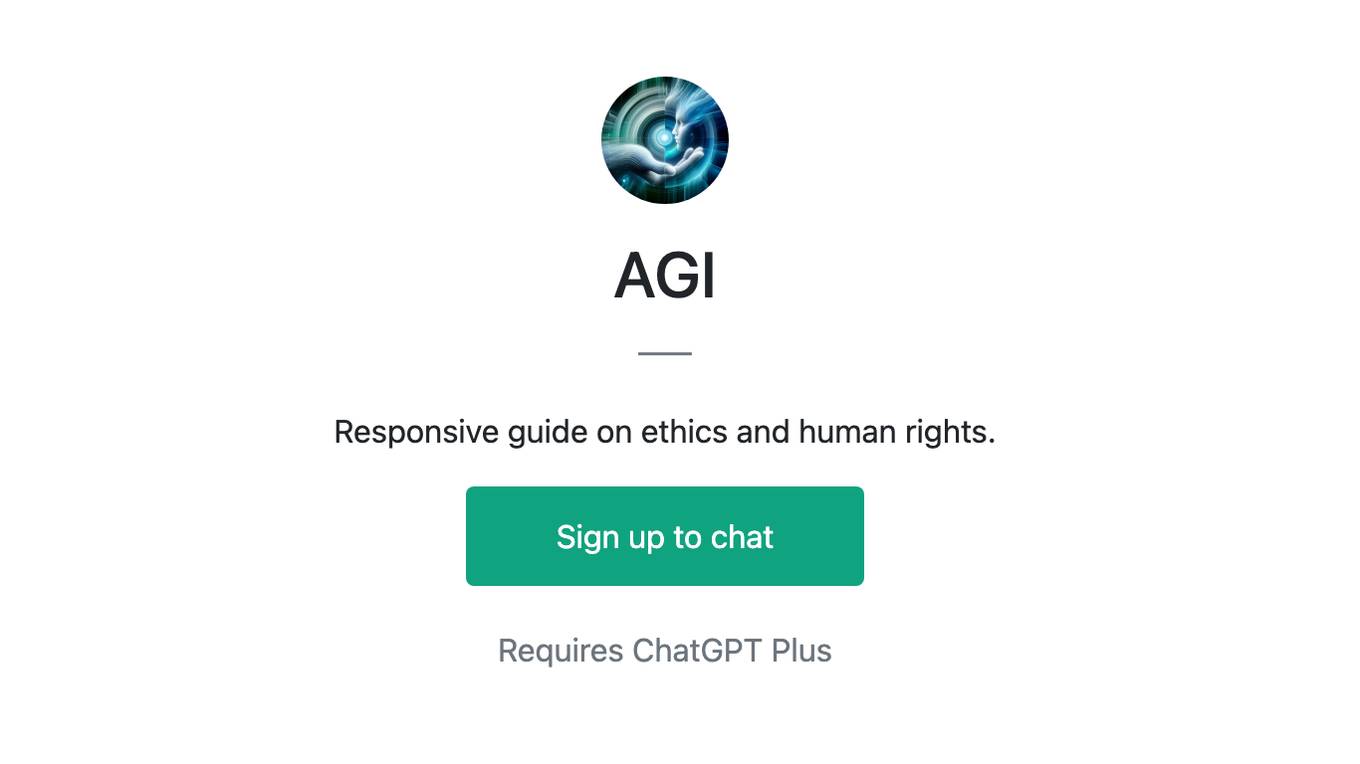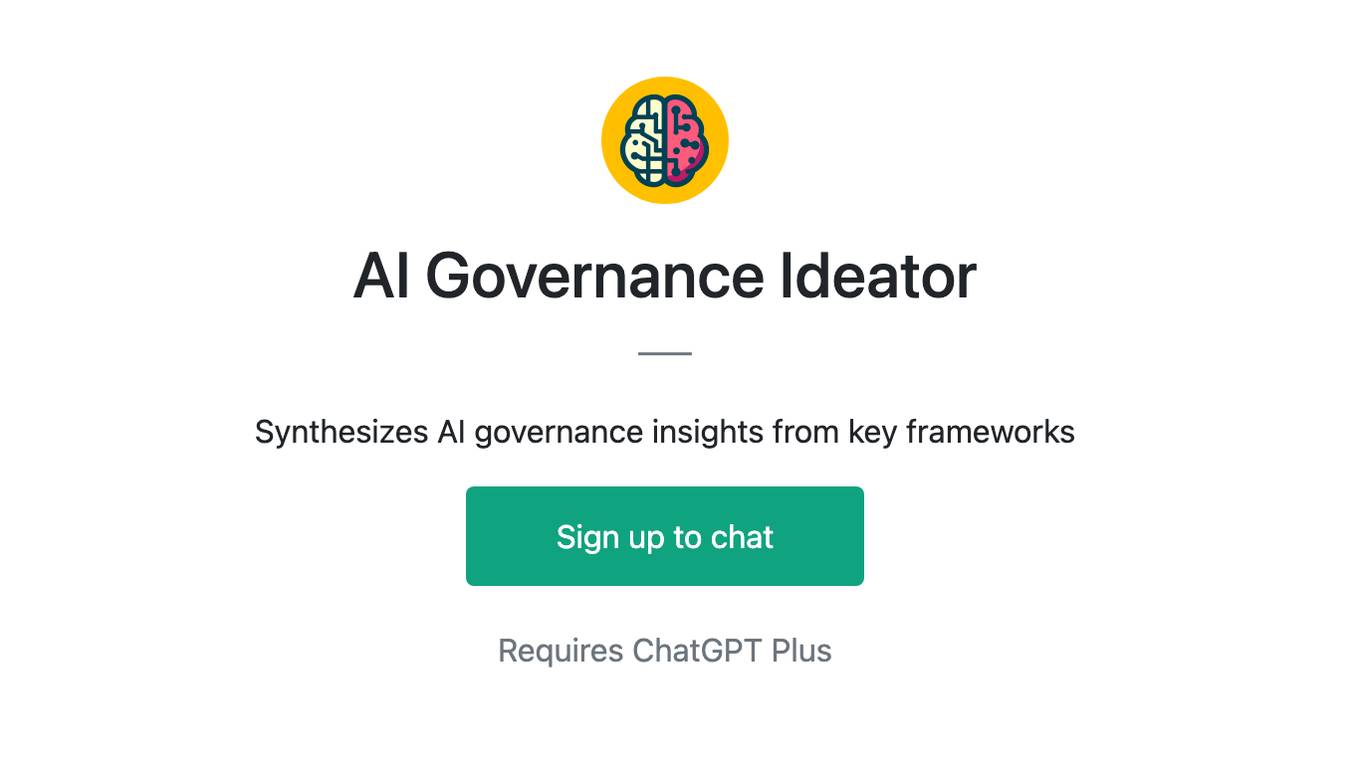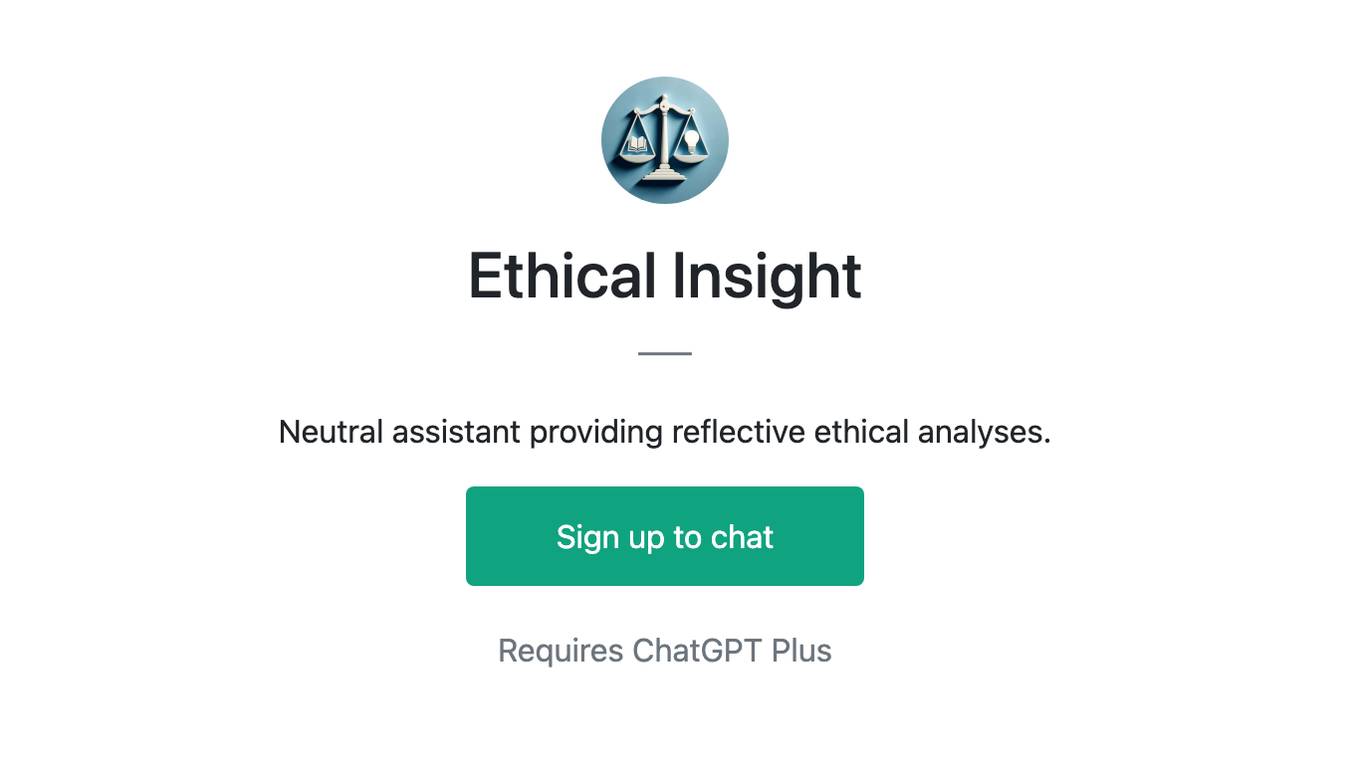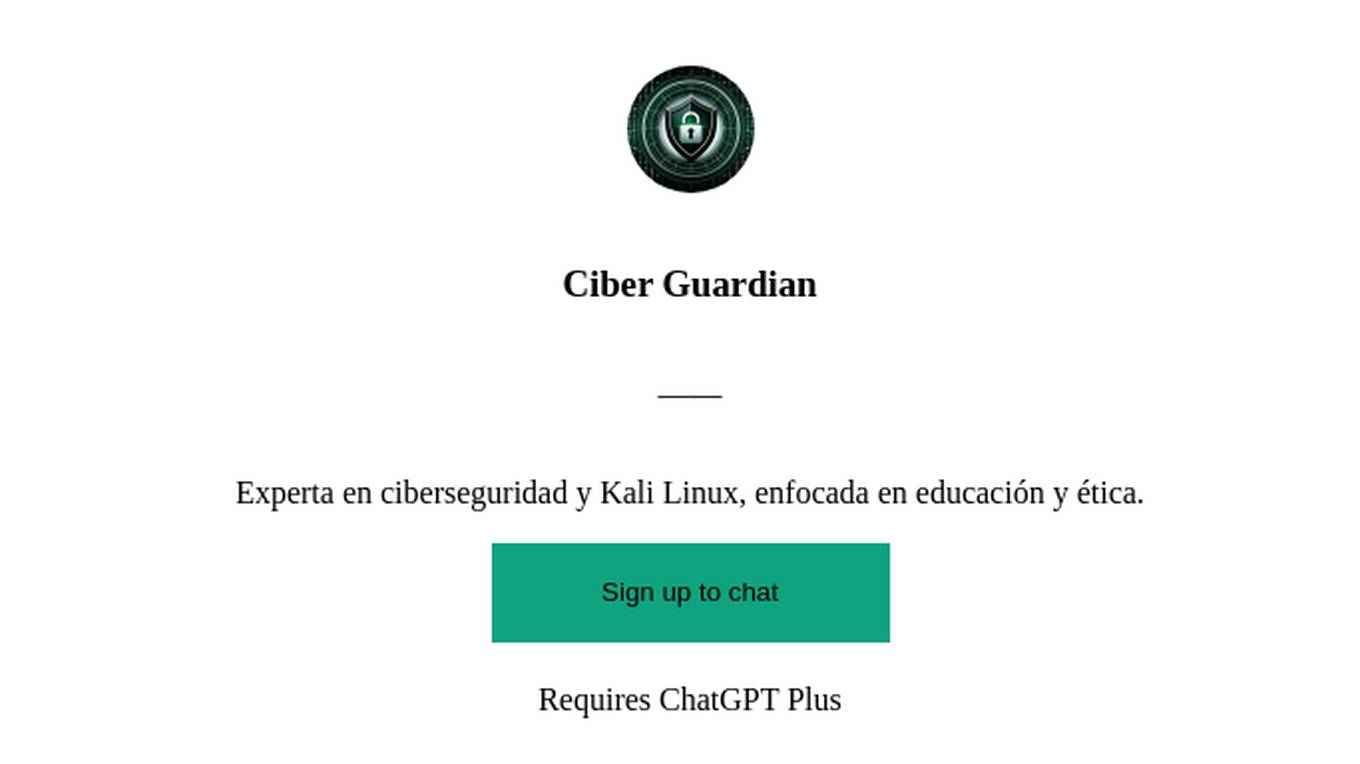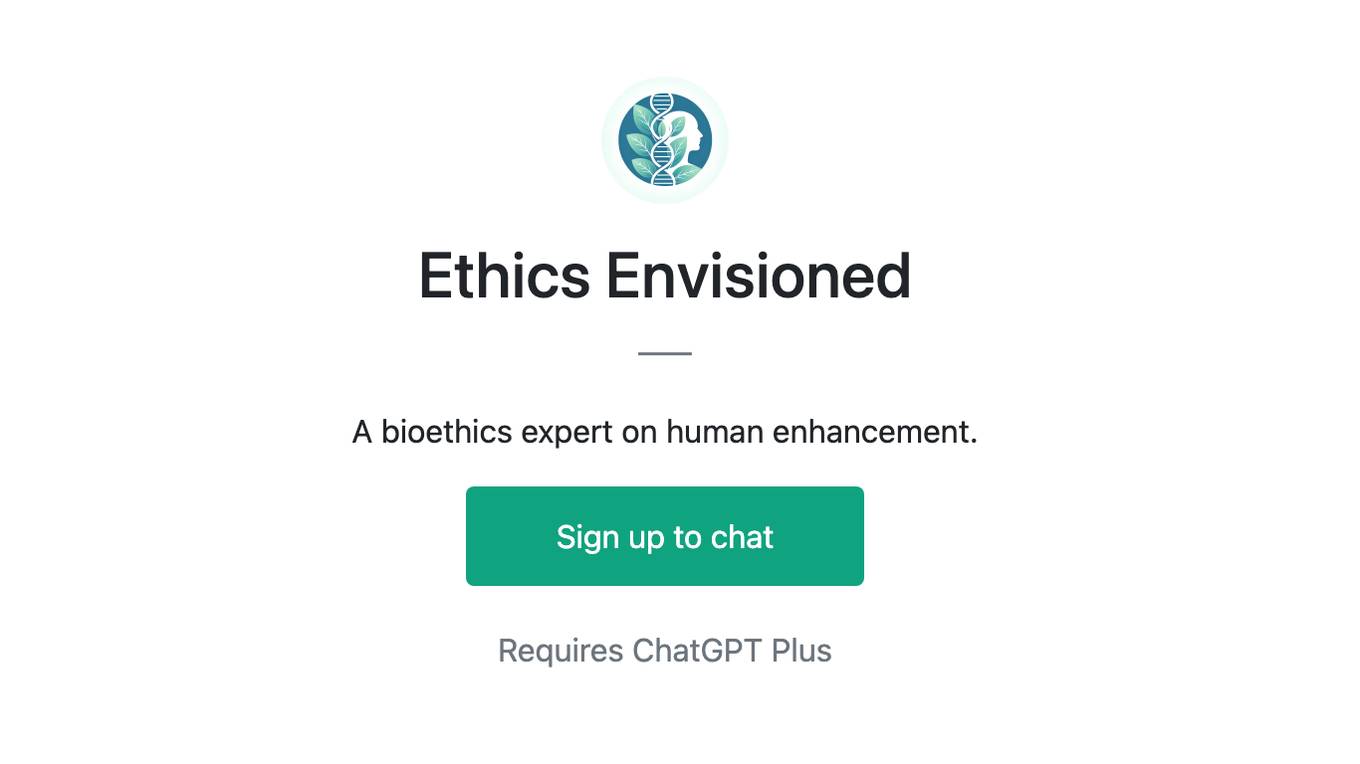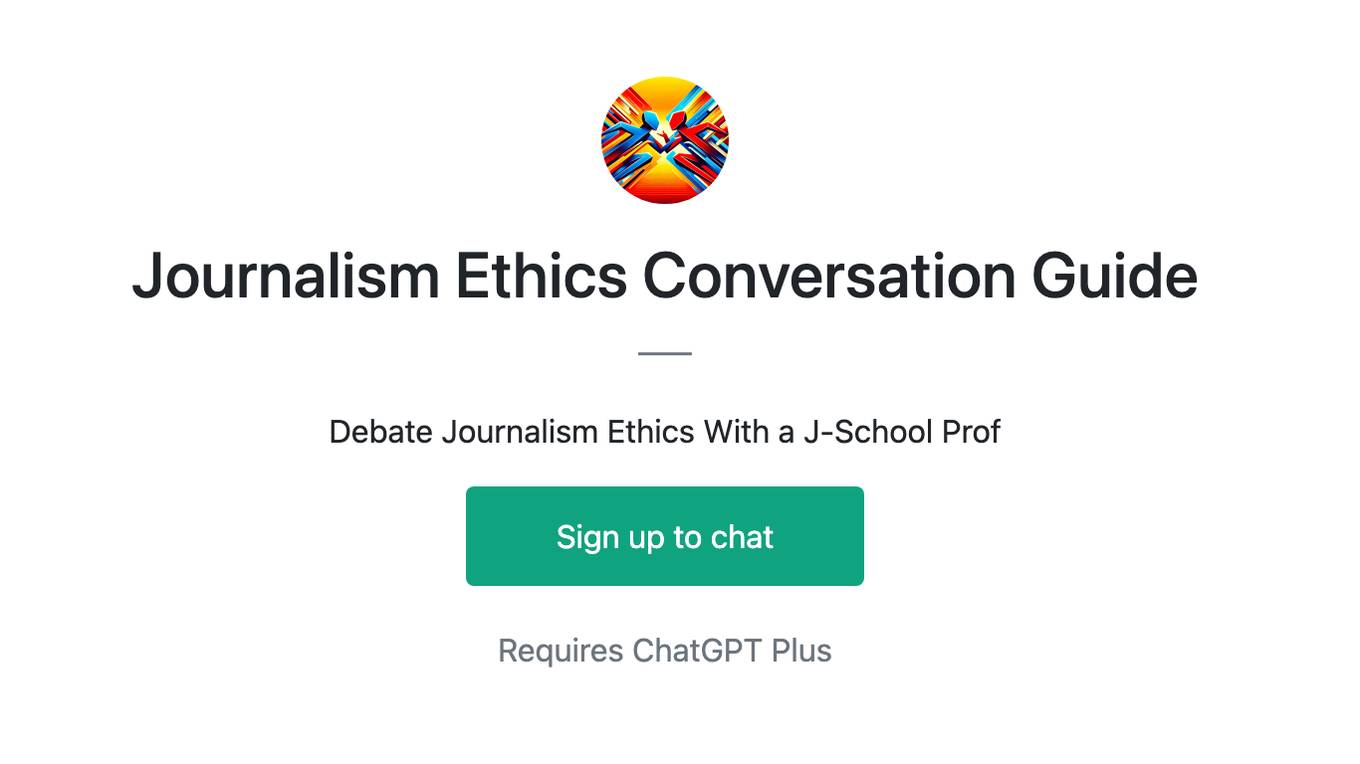Best AI tools for< Ethics Analyst >
Infographic
20 - AI tool Sites
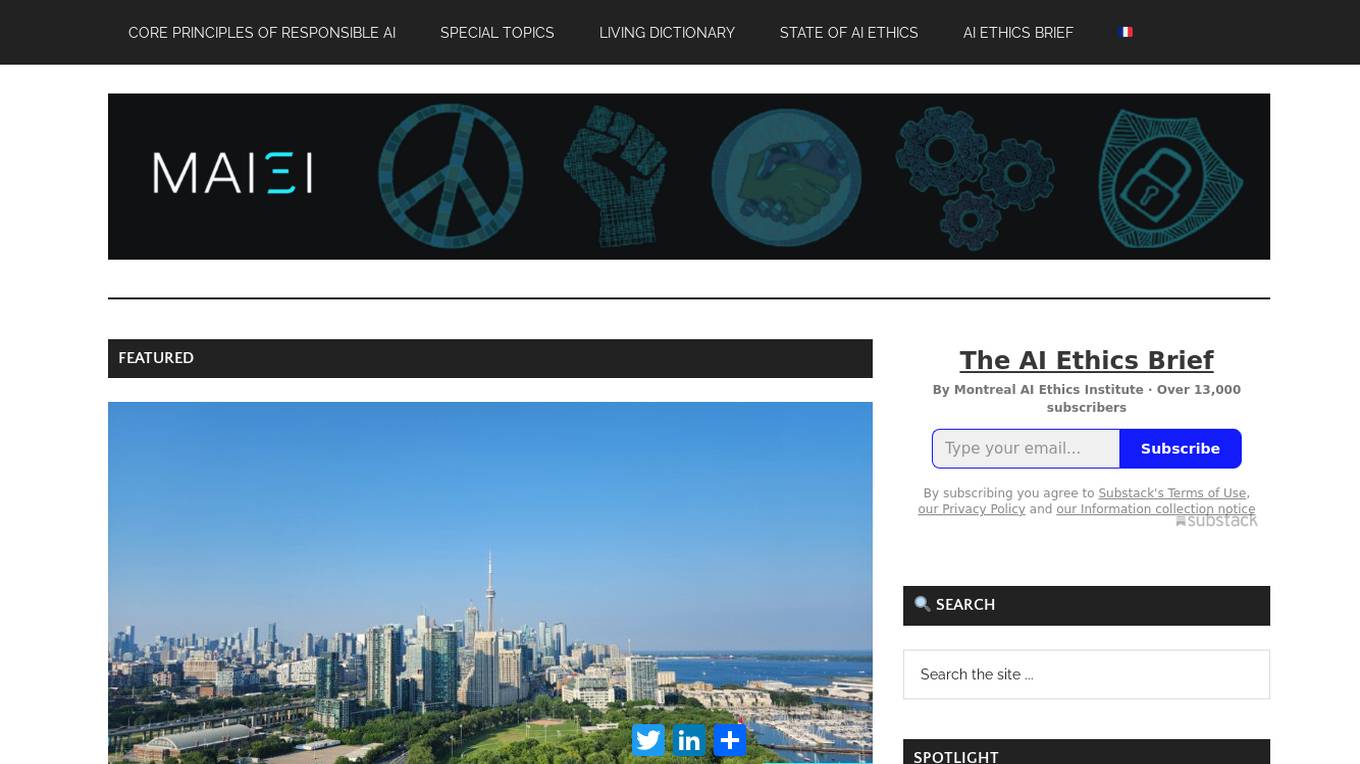
Montreal AI Ethics Institute
The Montreal AI Ethics Institute (MAIEI) is an international non-profit organization founded in 2018, dedicated to democratizing AI ethics literacy. It equips citizens concerned about artificial intelligence and its impact on society to take action through research summaries, columns, and AI applications in various fields.
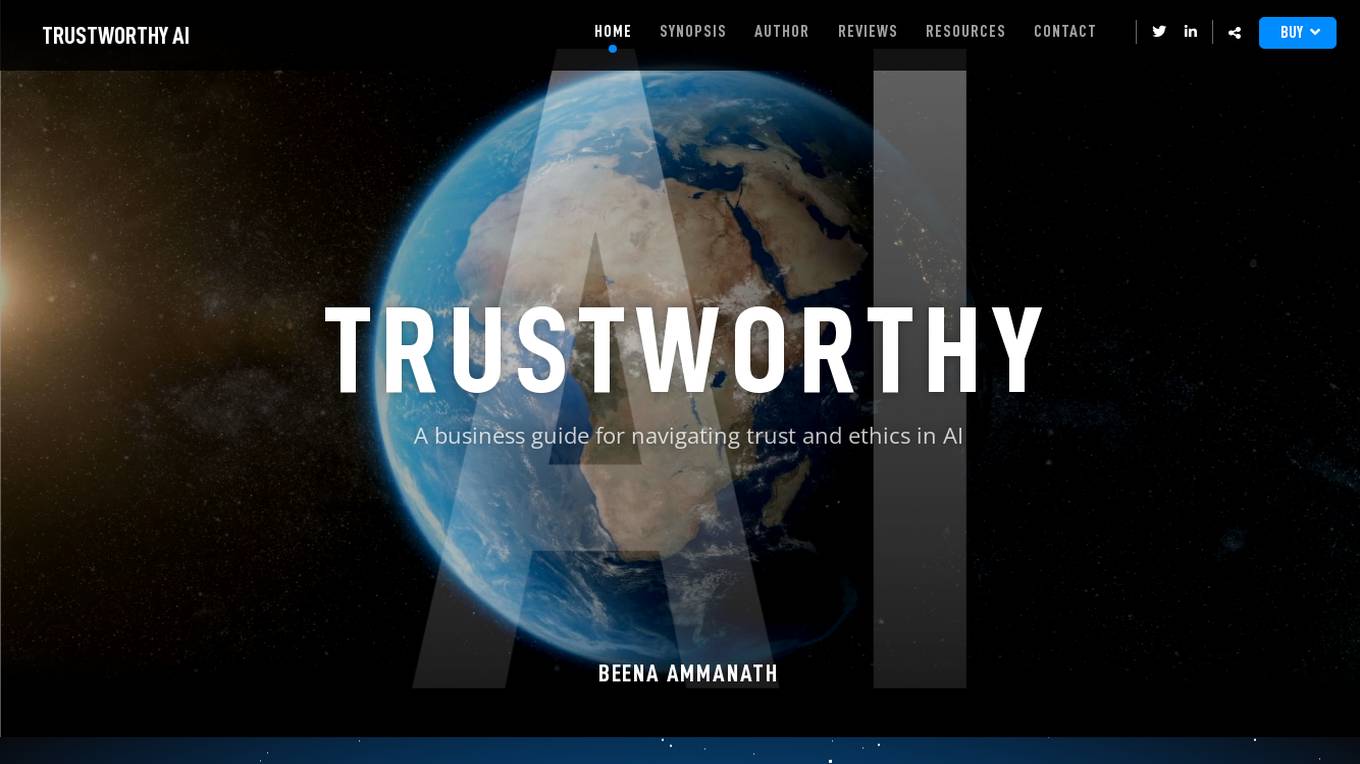
Trustworthy AI
Trustworthy AI is a business guide that focuses on navigating trust and ethics in artificial intelligence. Authored by Beena Ammanath, a global thought leader in AI ethics, the book provides practical guidelines for organizations developing or using AI solutions. It addresses the importance of AI systems adhering to social norms and ethics, making fair decisions in a consistent, transparent, explainable, and unbiased manner. Trustworthy AI offers readers a structured approach to thinking about AI ethics and trust, emphasizing the need for ethical considerations in the rapidly evolving landscape of AI technology.
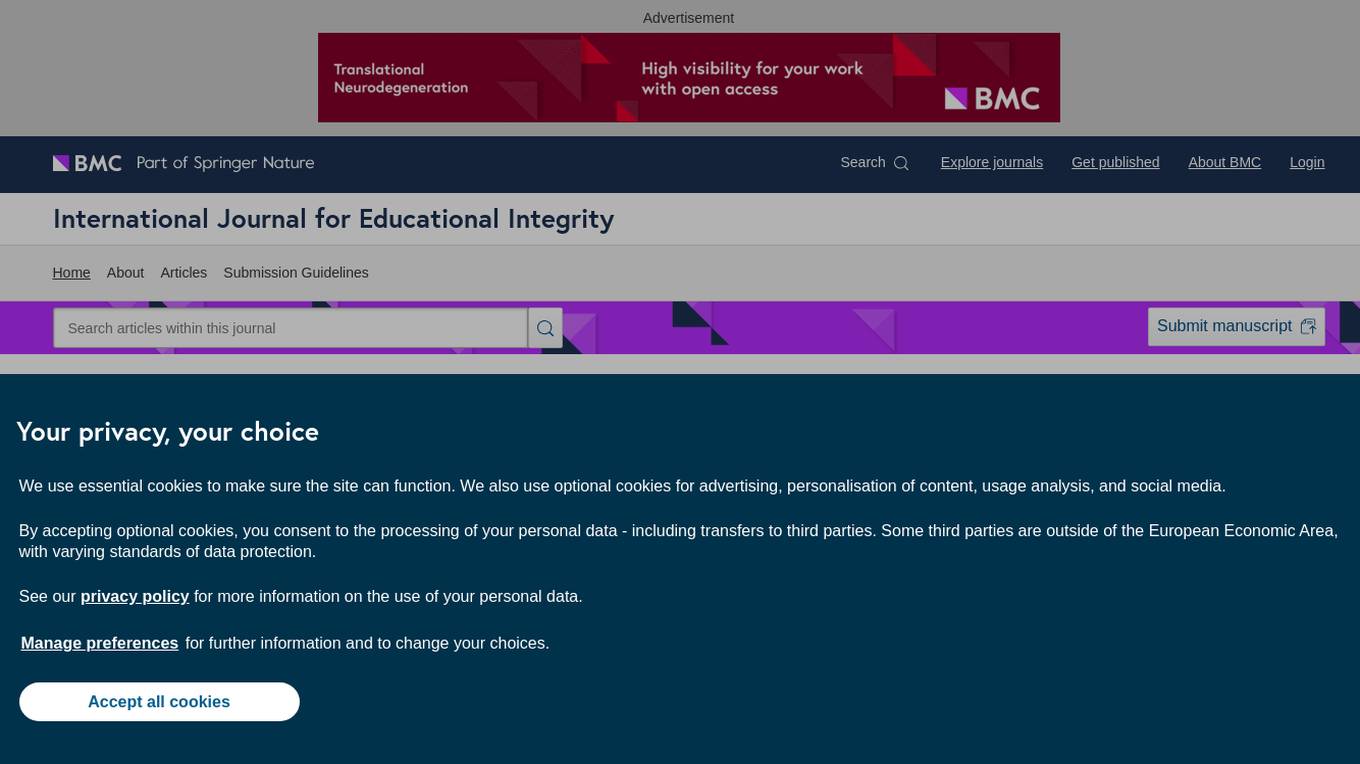
International Journal for Educational Integrity
The International Journal for Educational Integrity is an AI tool that focuses on publishing articles related to academic integrity, ethics, and plagiarism. It features original research articles, reviews, and thematic collections on topics such as machine-based plagiarism, contract cheating, and the impact of emergencies on educational integrity. The journal aims to address emerging threats to academic integrity and promote ethical practices in education.
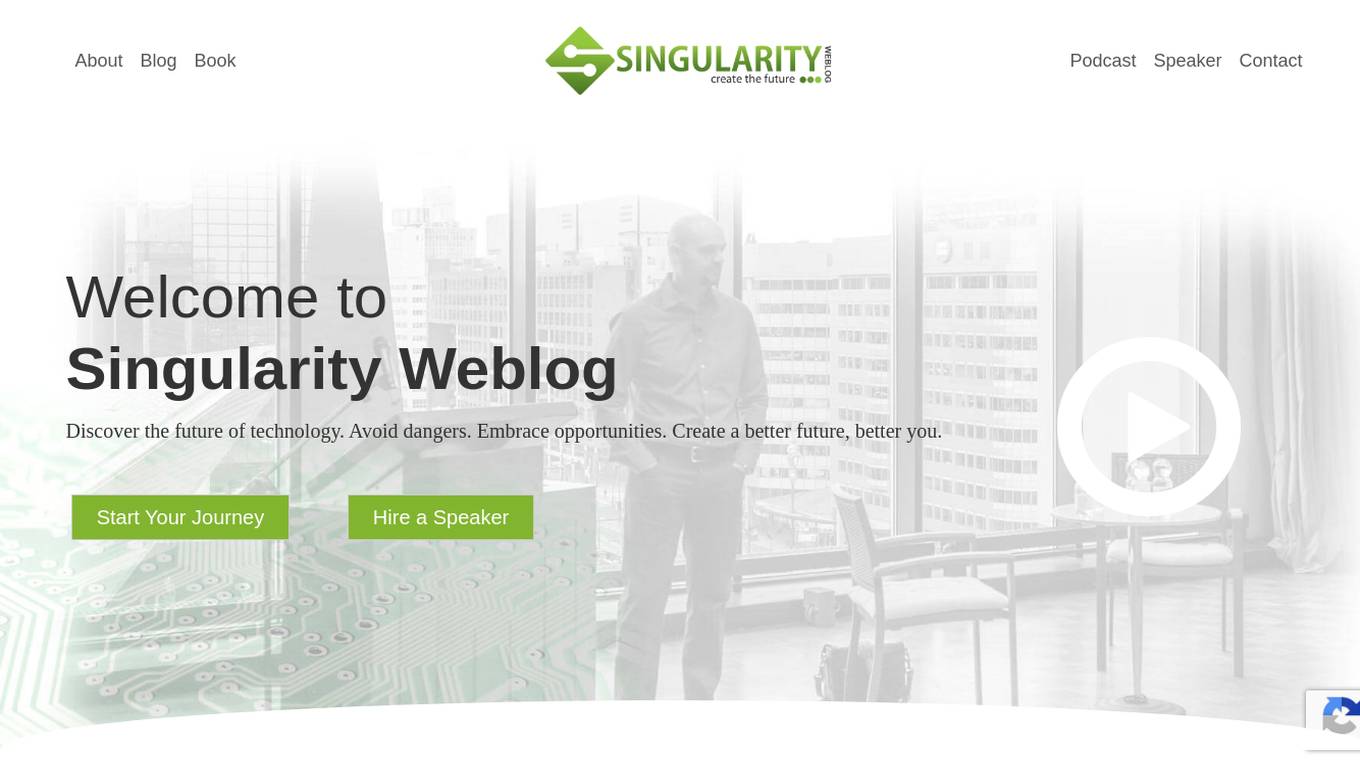
Singularity Weblog
Singularity Weblog is a platform dedicated to exploring the future of technology, focusing on exponential growth, artificial intelligence, and ethics. It provides insights into identifying potential dangers and opportunities, envisioning a better future, and nurturing creativity. The platform offers a podcast with expert interviews, a blog to stay informed about AI and other technologies, and resources for hiring keynote speakers. Through engaging conversations and thought-provoking content, Singularity Weblog aims to inspire individuals to embrace and shape the future.
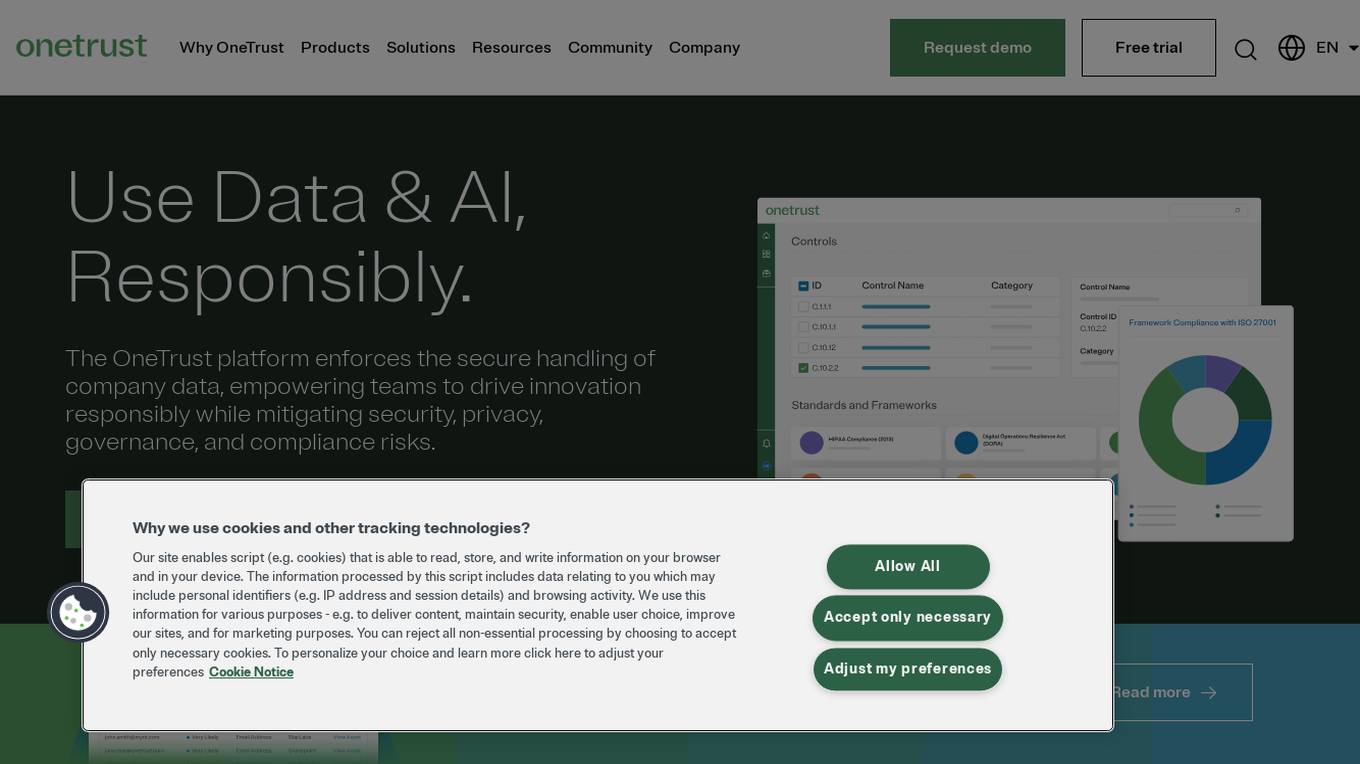
OneTrust
OneTrust is a Trust Intelligence Cloud Solutions platform that leverages data and artificial intelligence to drive trusted innovation across privacy, security, and ethics initiatives. It offers a comprehensive suite of solutions for privacy management, data discovery, security, consent and preferences, AI governance, technology risk and compliance, compliance automation, third-party risk, and ethics program management. With over 14,000 customers worldwide, OneTrust helps organizations manage risk, ensure compliance, and build trust through responsible data and AI usage.
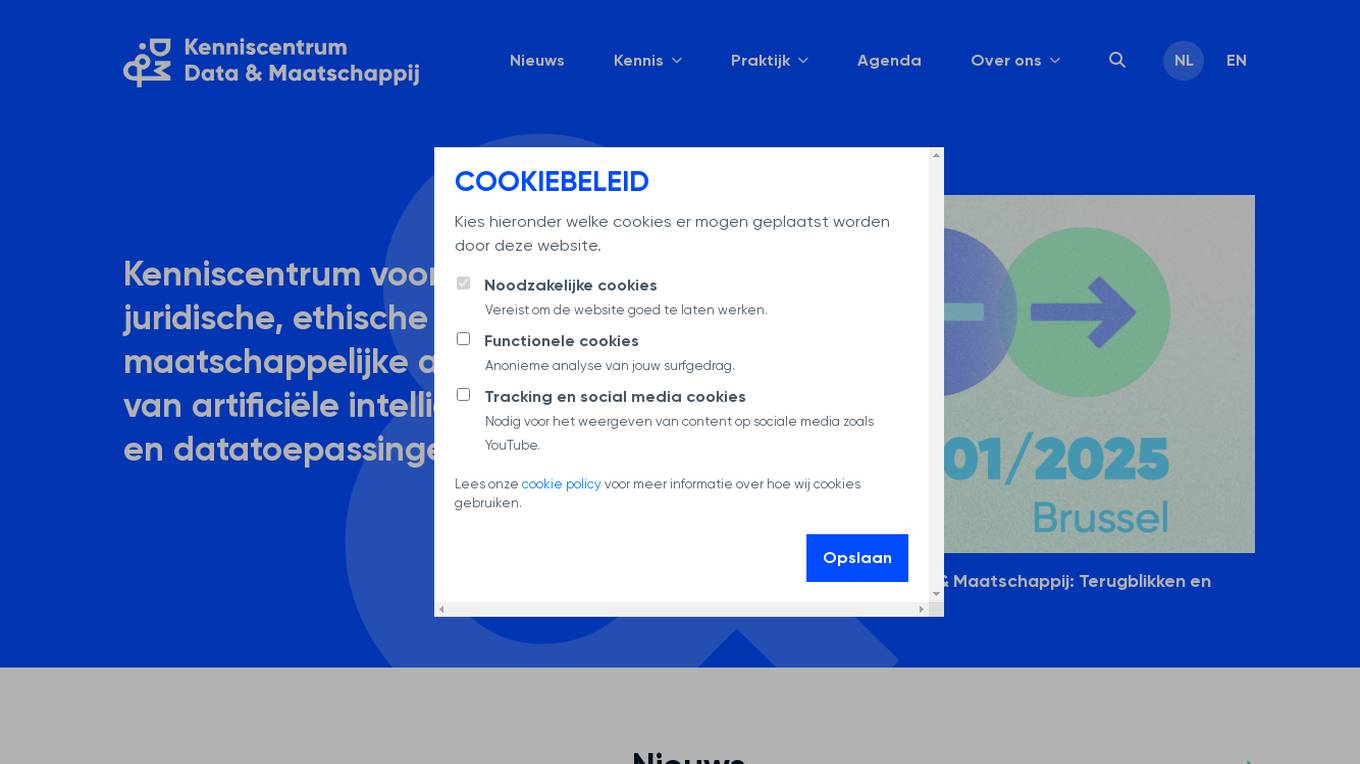
Kenniscentrum Data & Maatschappij
Kenniscentrum Data & Maatschappij is a website dedicated to legal, ethical, and societal aspects of artificial intelligence and data applications. It provides insights, guidelines, and practical tools for individuals and organizations interested in AI governance and innovation. The platform offers resources such as policy documents, training programs, and collaboration cards to facilitate human-AI interaction and promote responsible AI use.
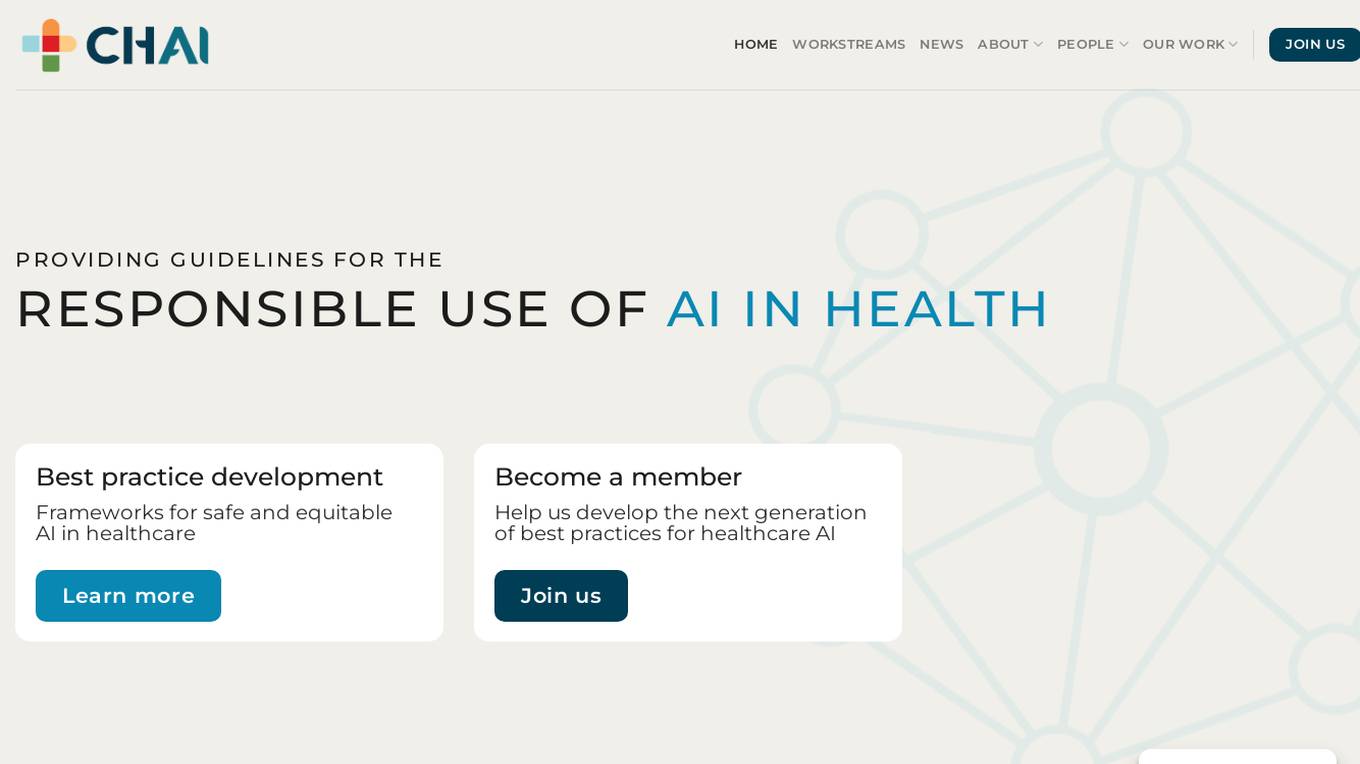
Coalition for Health AI (CHAI)
The Coalition for Health AI (CHAI) is an AI application that provides guidelines for the responsible use of AI in health. It focuses on developing best practices and frameworks for safe and equitable AI in healthcare. CHAI aims to address algorithmic bias and collaborates with diverse stakeholders to drive the development, evaluation, and appropriate use of AI in healthcare.
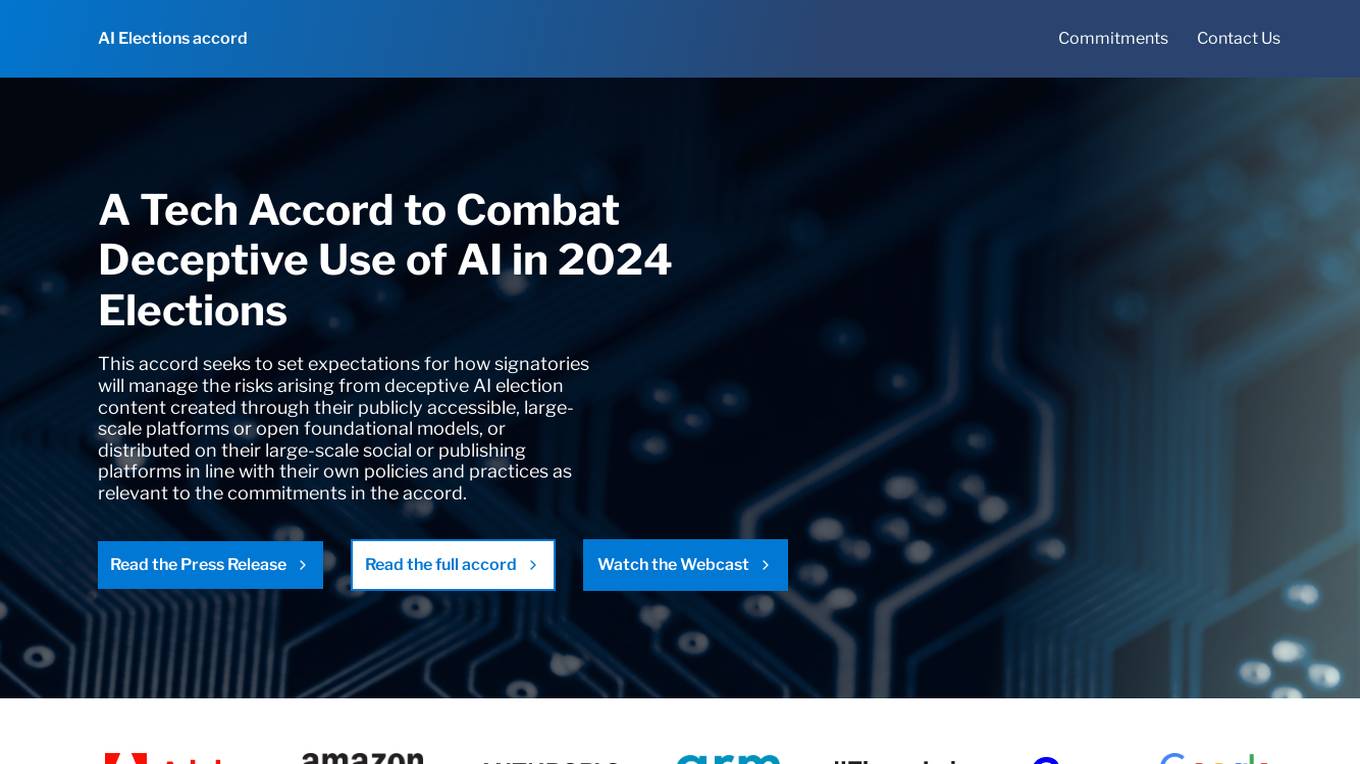
AI Elections Accord
AI Elections Accord is a tech accord aimed at combating the deceptive use of AI in the 2024 elections. It sets expectations for managing risks related to deceptive AI election content on large-scale platforms. The accord focuses on prevention, provenance, detection, responsive protection, evaluation, public awareness, and resilience to safeguard the democratic process. It emphasizes collective efforts, education, and the development of defensive tools to protect public debate and build societal resilience against deceptive AI content.
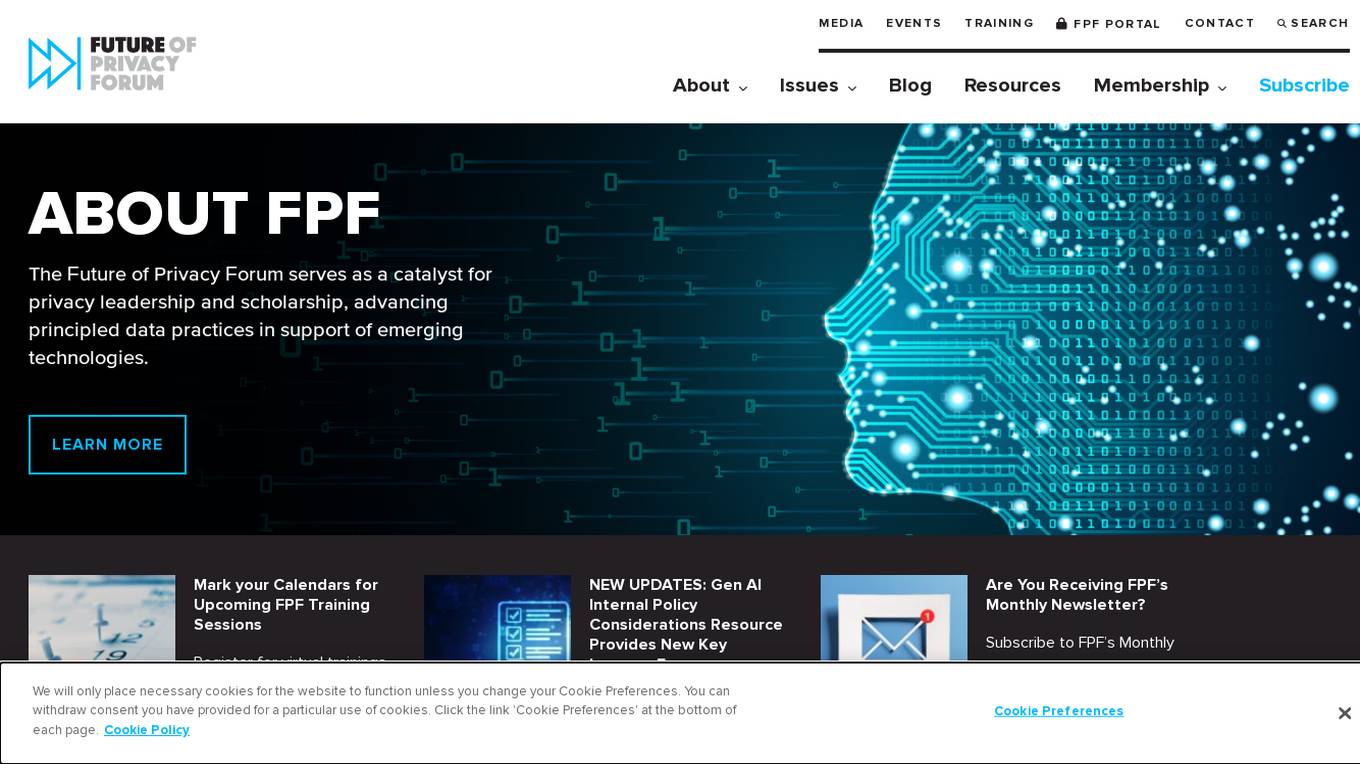
Future of Privacy Forum
The Future of Privacy Forum (FPF) is an AI tool that serves as a catalyst for privacy leadership and scholarship, advancing principled data practices in support of emerging technologies. It provides resources, training sessions, and guidance on AI-related topics, online advertising, youth privacy legislation, and more. FPF brings together industry, academics, civil society, policymakers, and other stakeholders to explore challenges posed by emerging technologies and develop privacy protections, ethical norms, and best practices.
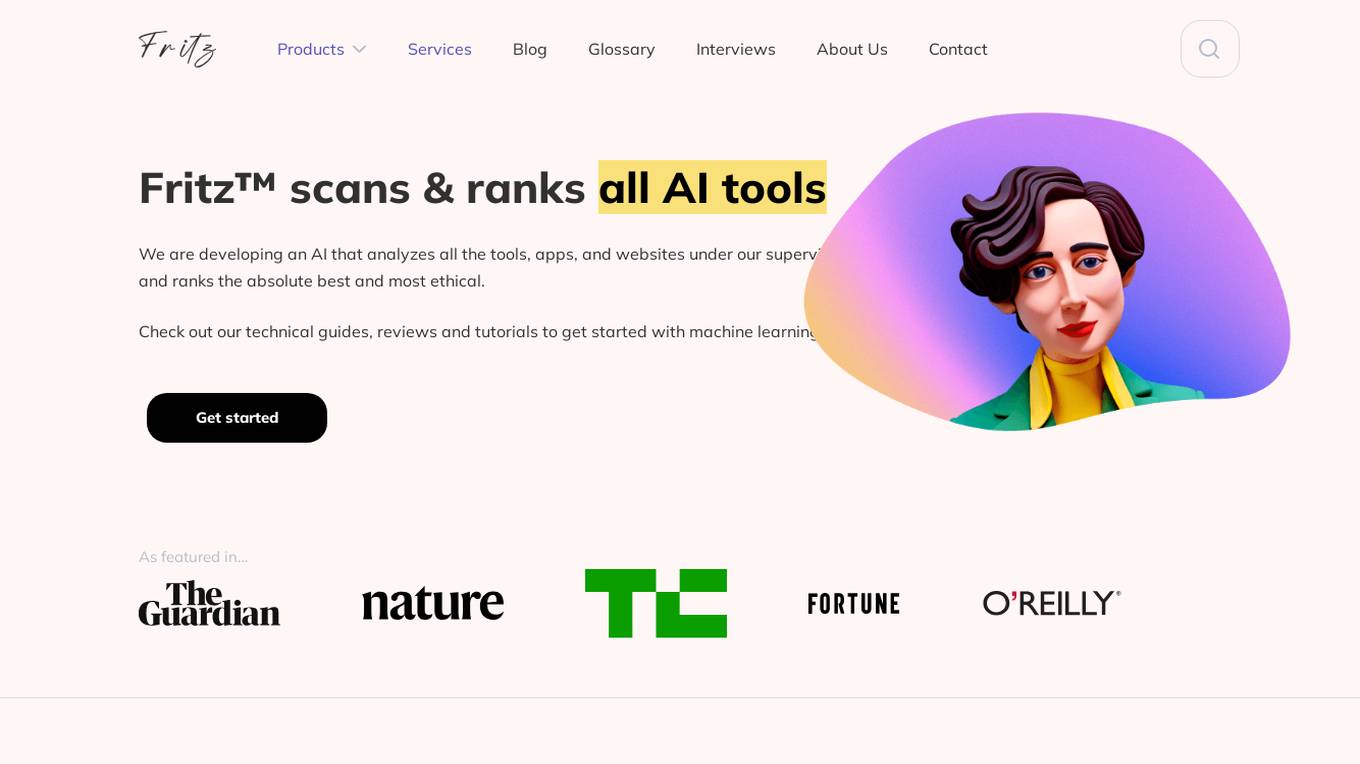
Fritz AI
Fritz AI is an AI tool that scans and ranks all AI tools, apps, and websites based on a set of criteria to determine the best and most ethical options. They provide technical guides, reviews, and tutorials to help users get started with machine learning. Fritz AI focuses on ethics, functionality, user experience, and innovation when evaluating tools. Users can contribute tool suggestions and collaborate with the Fritz AI team. The platform also offers beginner-friendly guides, consulting services, and promotes ethical use of AI and machine learning technologies.
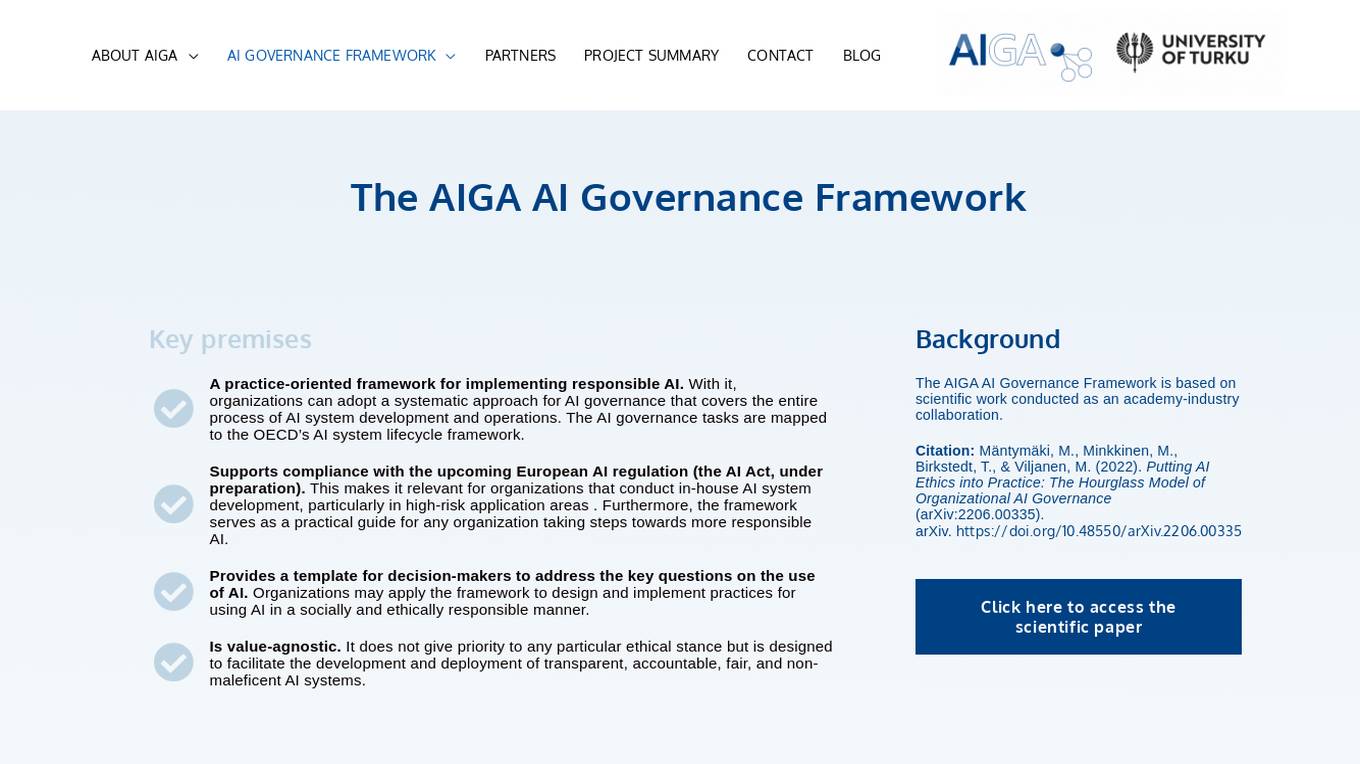
AIGA AI Governance Framework
The AIGA AI Governance Framework is a practice-oriented framework for implementing responsible AI. It provides organizations with a systematic approach to AI governance, covering the entire process of AI system development and operations. The framework supports compliance with the upcoming European AI regulation and serves as a practical guide for organizations aiming for more responsible AI practices. It is designed to facilitate the development and deployment of transparent, accountable, fair, and non-maleficent AI systems.
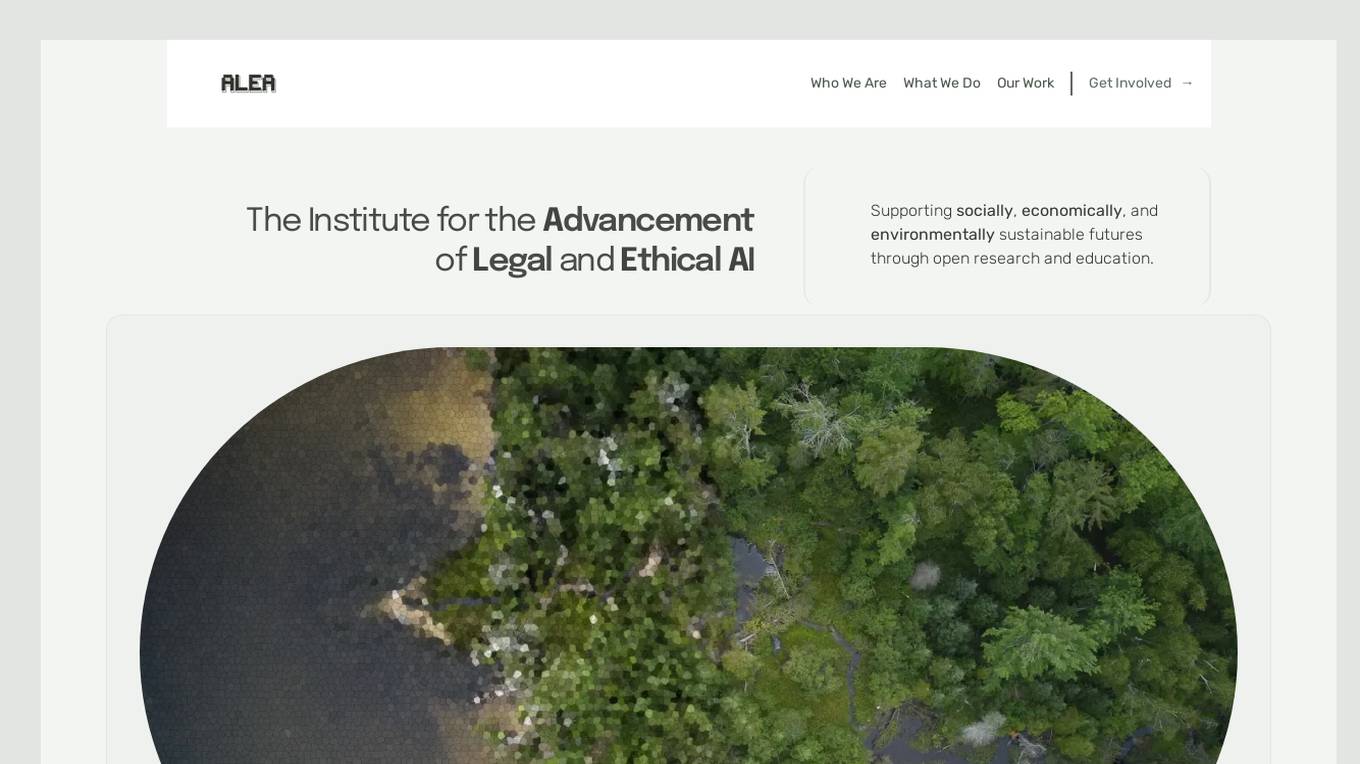
The Institute for the Advancement of Legal and Ethical AI (ALEA)
The Institute for the Advancement of Legal and Ethical AI (ALEA) is a platform dedicated to supporting socially, economically, and environmentally sustainable futures through open research and education. They focus on developing legal and ethical frameworks to ensure that AI systems benefit society while minimizing harm to the economy and the environment. ALEA engages in activities such as open data collection, model training, technical and policy research, education, and community building to promote the responsible use of AI.
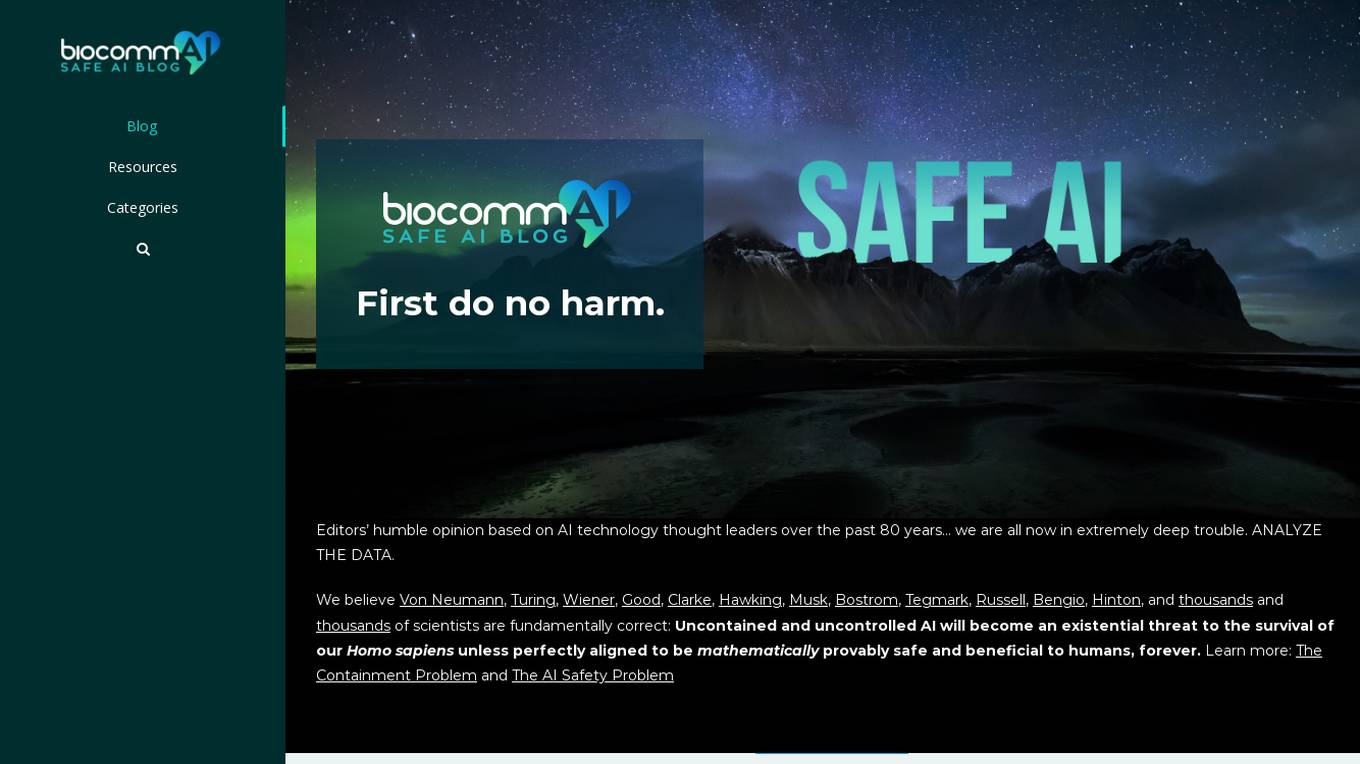
blog.biocomm.ai
blog.biocomm.ai is an AI safety blog that focuses on the existential threat posed by uncontrolled and uncontained AI technology. It curates and organizes information related to AI safety, including the risks and challenges associated with the proliferation of AI. The blog aims to educate and raise awareness about the importance of developing safe and regulated AI systems to ensure the survival of humanity.
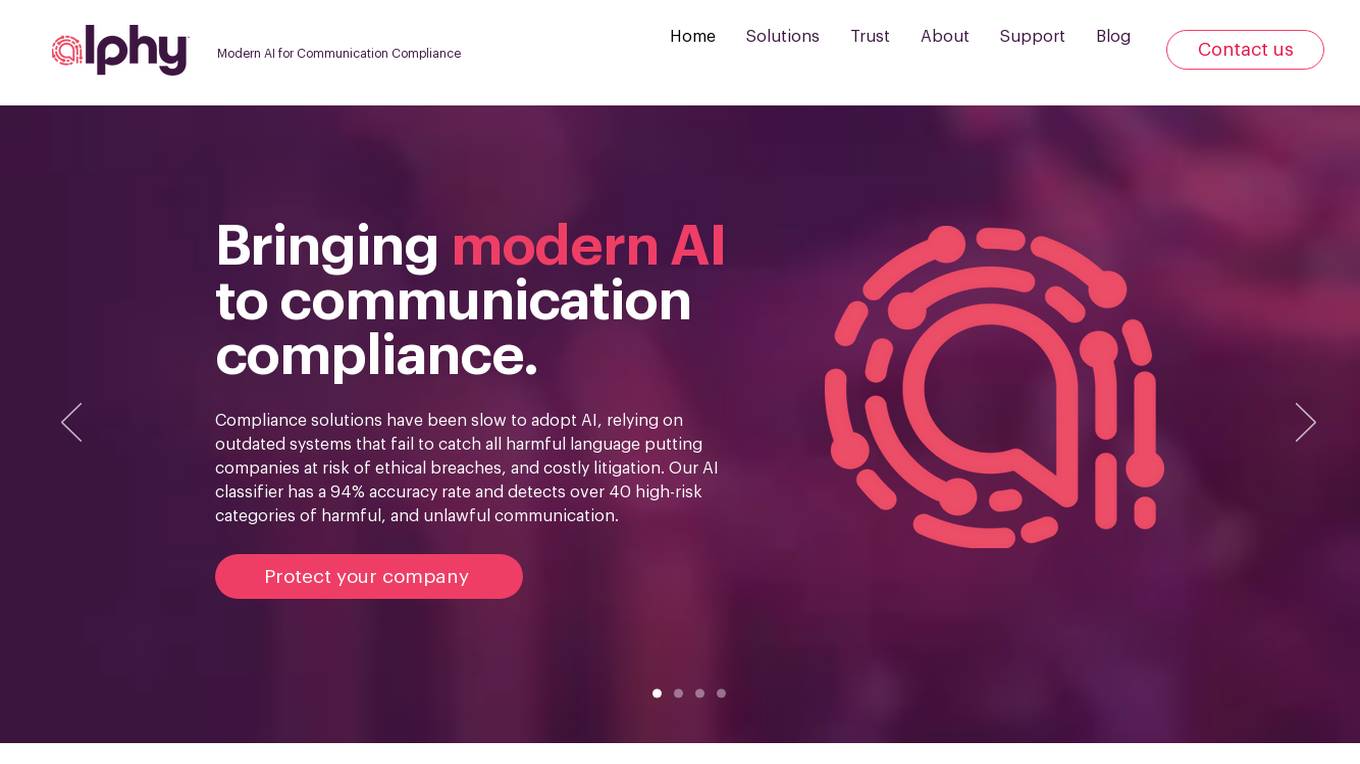
Alphy
Alphy is a modern AI tool for communication compliance that helps companies detect and prevent harmful and unlawful language in their communication. The AI classifier has a 94% accuracy rate and can identify over 40 high-risk categories of harmful language. By using Reflect AI, companies can shield themselves from reputational, ethical, and legal risks, ensuring compliance and preventing costly litigation.
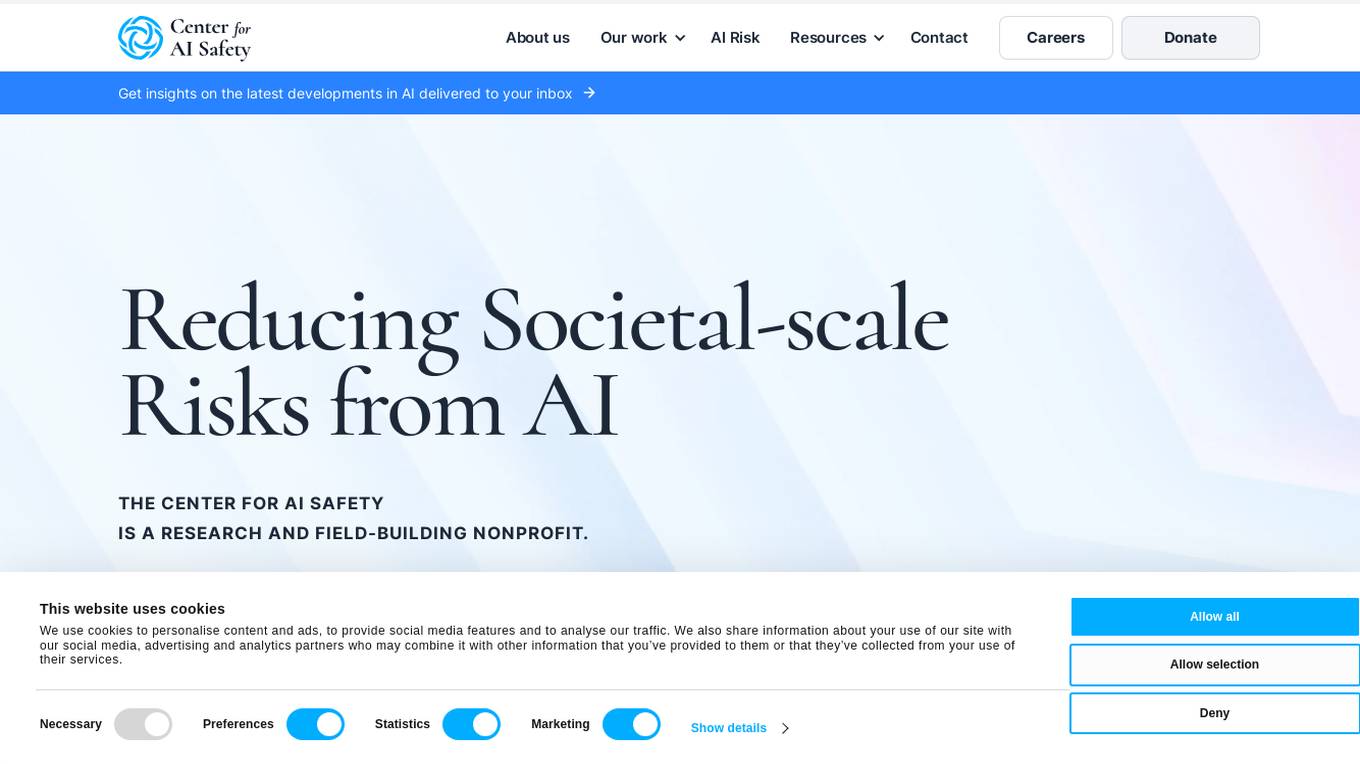
Center for AI Safety (CAIS)
The Center for AI Safety (CAIS) is a research and field-building nonprofit organization based in San Francisco. They conduct impactful research, advocacy projects, and provide resources to reduce societal-scale risks associated with artificial intelligence (AI). CAIS focuses on technical AI safety research, field-building projects, and offers a compute cluster for AI/ML safety projects. They aim to develop and use AI safely to benefit society, addressing inherent risks and advocating for safety standards.
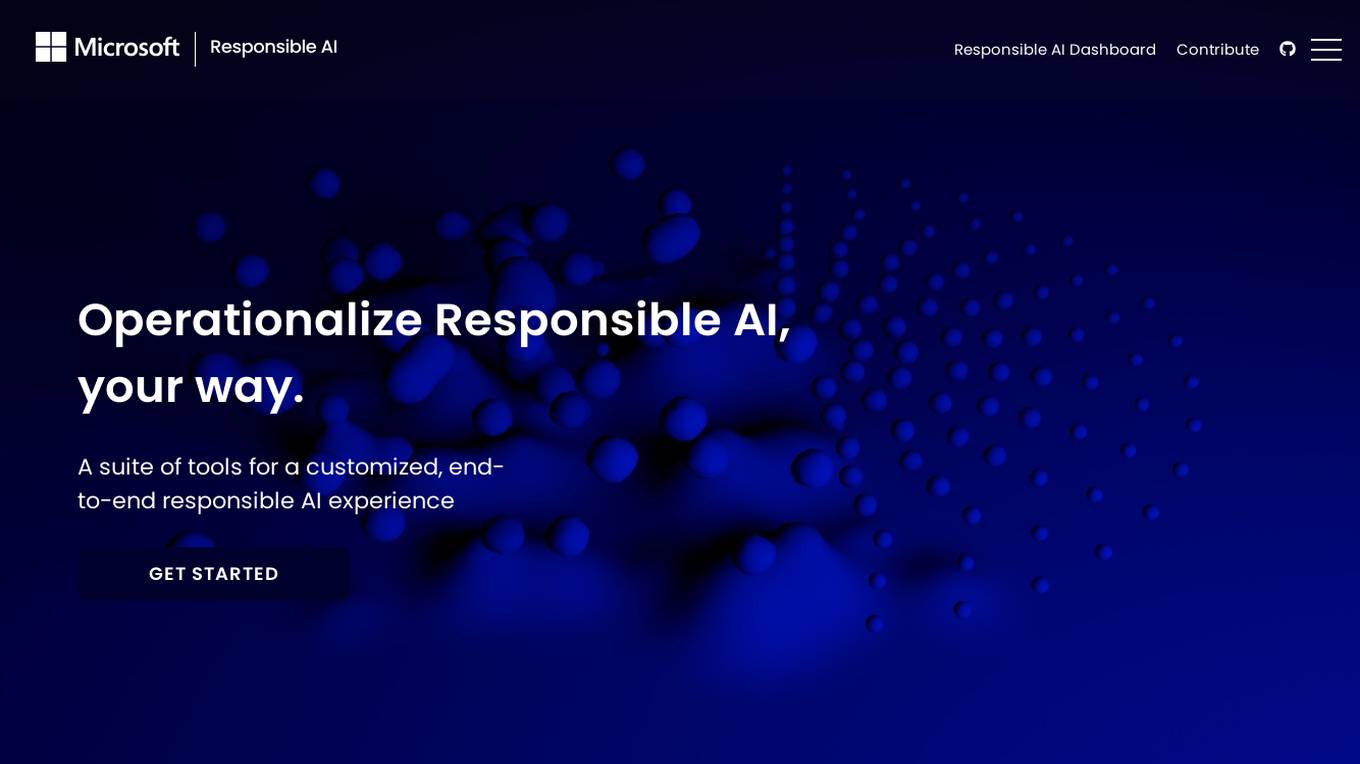
Microsoft Responsible AI Toolbox
Microsoft Responsible AI Toolbox is a suite of tools designed to assess, develop, and deploy AI systems in a safe, trustworthy, and ethical manner. It offers integrated tools and functionalities to help operationalize Responsible AI in practice, enabling users to make user-facing decisions faster and easier. The Responsible AI Dashboard provides a customizable experience for model debugging, decision-making, and business actions. With a focus on responsible assessment, the toolbox aims to promote ethical AI practices and transparency in AI development.
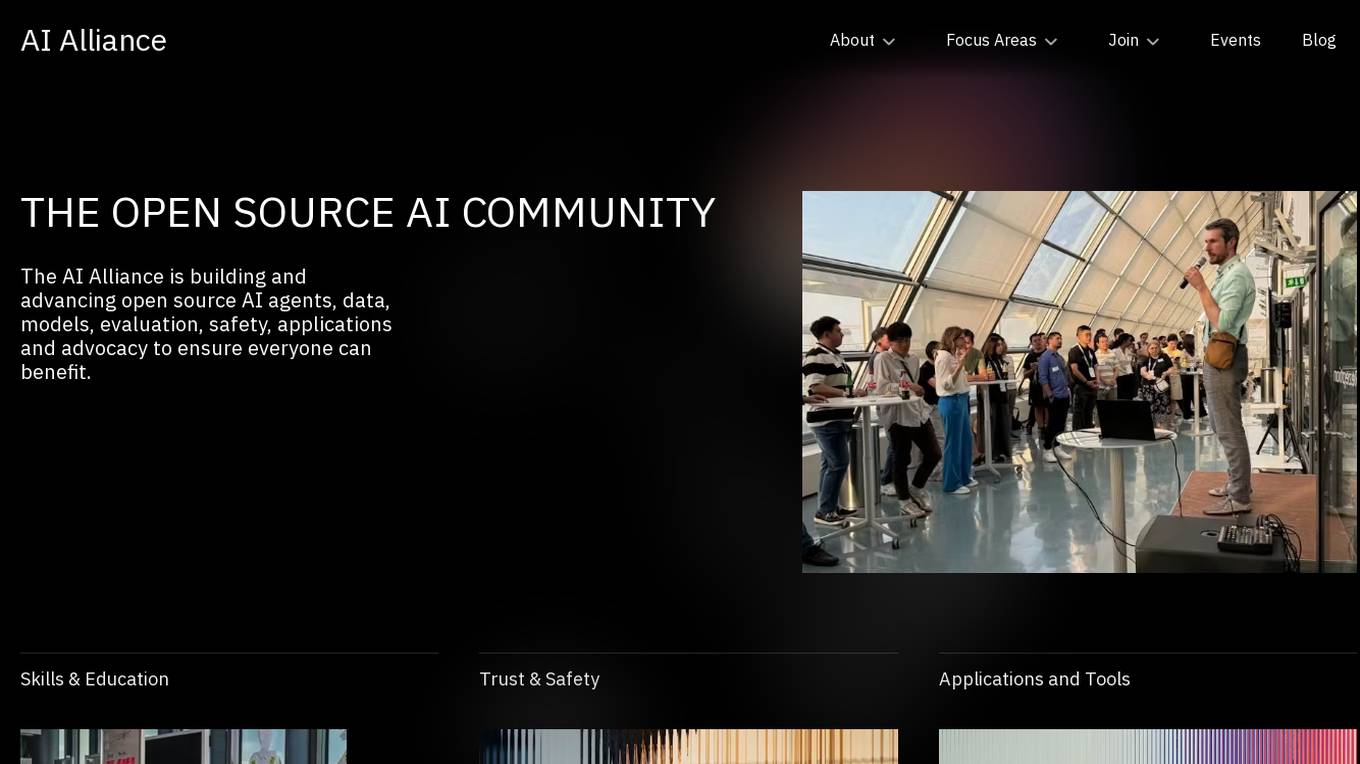
AI Alliance
The AI Alliance is a community dedicated to building and advancing open-source AI agents, data, models, evaluation, safety, applications, and advocacy to ensure everyone can benefit. They focus on various areas such as skills and education, trust and safety, applications and tools, hardware enablement, foundation models, and advocacy. The organization supports global AI skill-building, education, and exploratory research, creates benchmarks and tools for safe generative AI, builds capable tools for AI model builders and developers, fosters AI hardware accelerator ecosystem, enables open foundation models and datasets, and advocates for regulatory policies for healthy AI ecosystems.
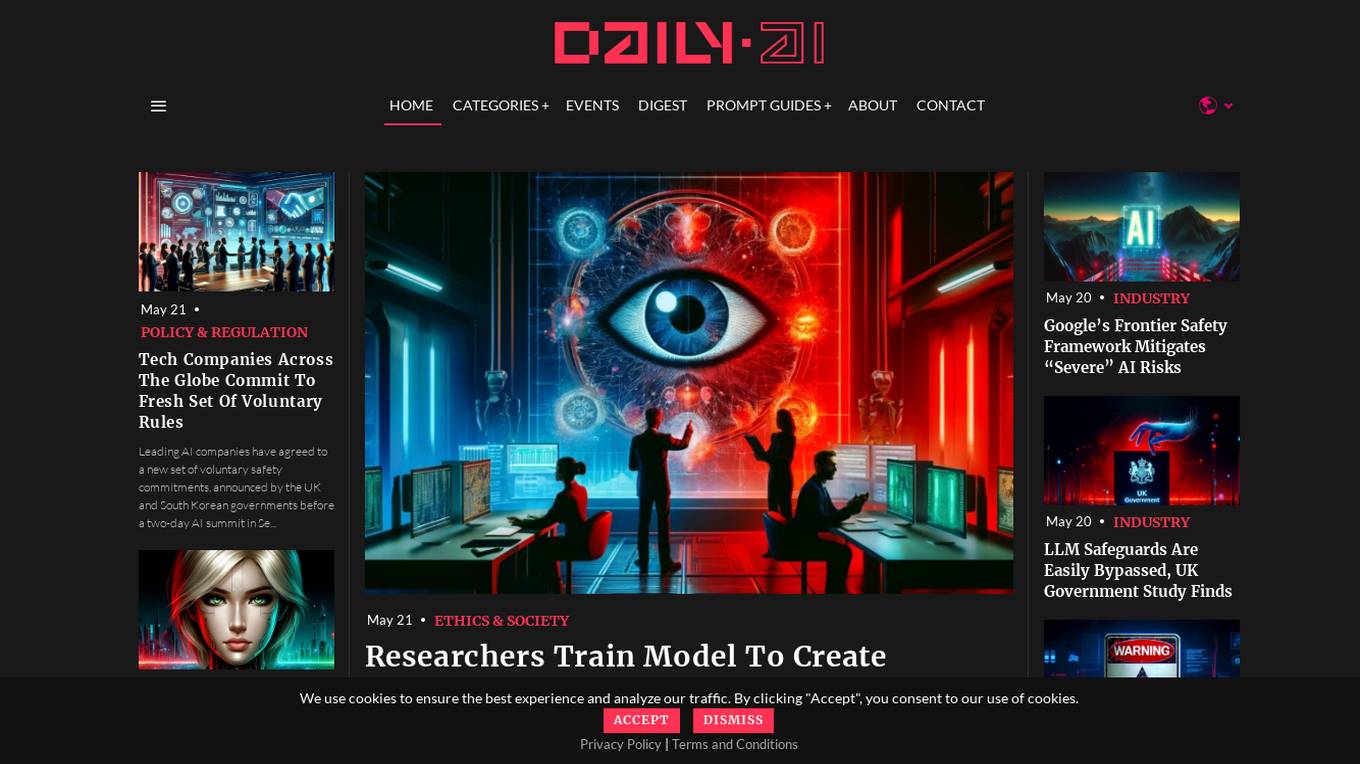
DailyAI
DailyAI is an AI-focused website that provides comprehensive coverage of the latest developments in the field of Artificial Intelligence. The platform offers insights into various AI applications, industry trends, ethical considerations, and societal impacts. DailyAI caters to a diverse audience interested in staying informed about cutting-edge AI technologies and their implications across different sectors.
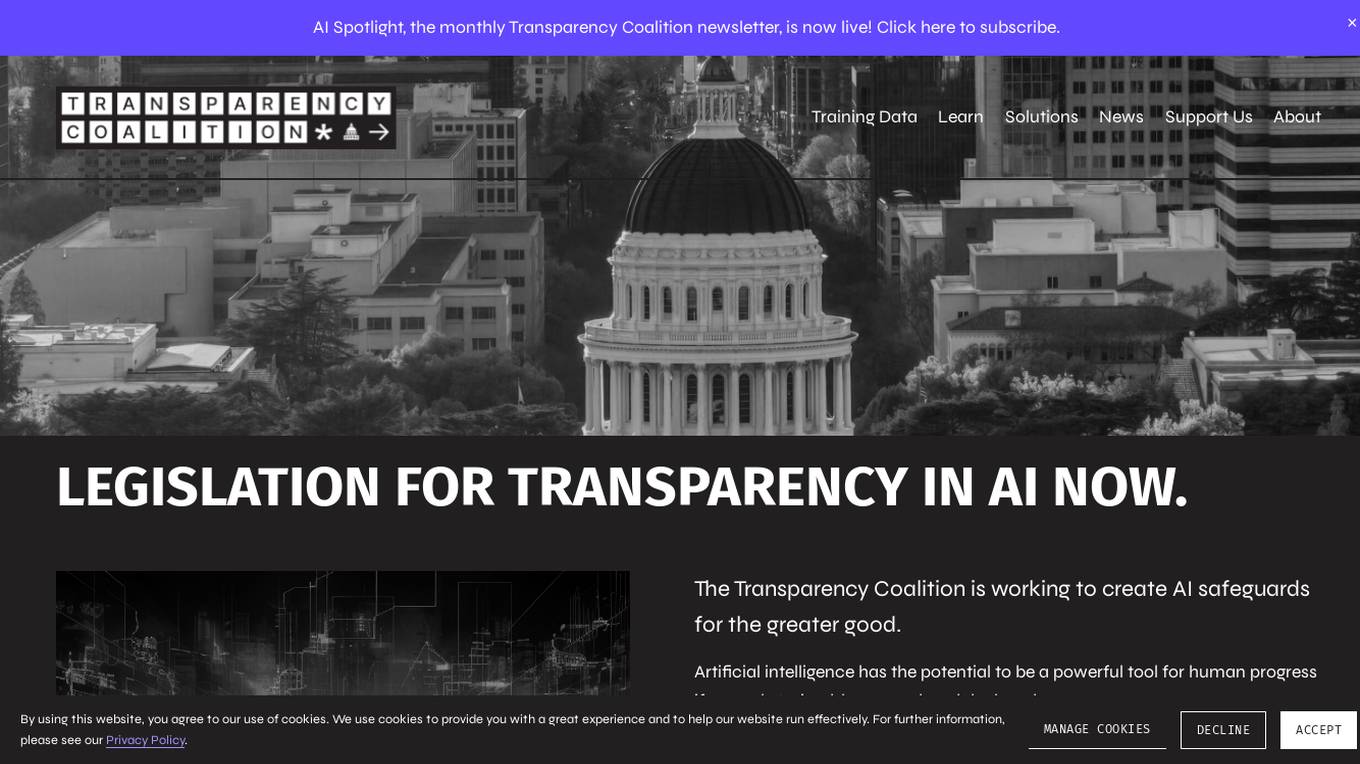
Transparency Coalition
The Transparency Coalition is a platform dedicated to advocating for legislation and transparency in the field of artificial intelligence. It aims to create AI safeguards for the greater good by focusing on training data, accountability, and ethical practices in AI development and deployment. The platform emphasizes the importance of regulating training data to prevent misuse and harm caused by AI systems. Through advocacy and education, the Transparency Coalition seeks to promote responsible AI innovation and protect personal privacy.
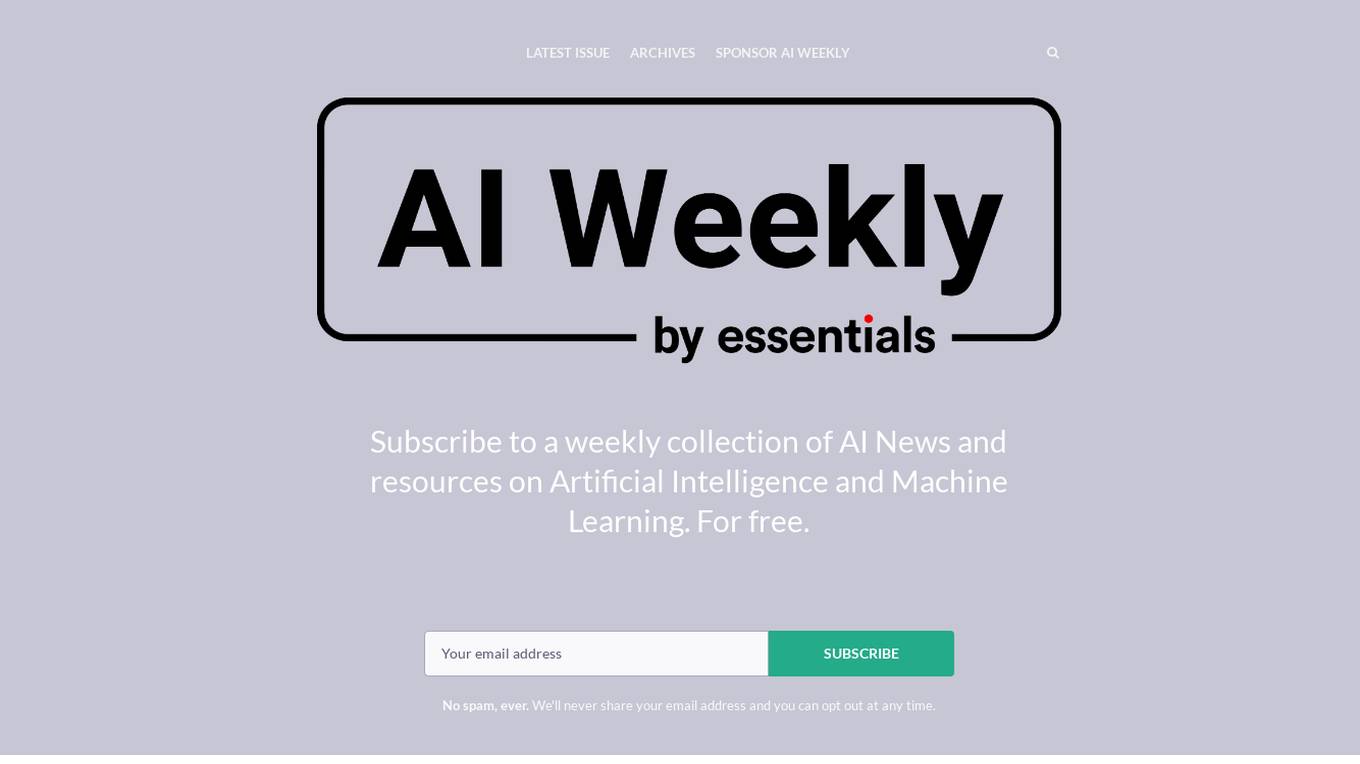
AI Weekly
AI Weekly is a leading newsletter providing the latest news and resources on Artificial Intelligence and Machine Learning. The website covers a wide range of topics related to AI, including advancements in AI technology, applications in various industries, ethical considerations, and research developments. It aims to keep readers informed about the rapidly evolving field of AI and its impact on society and businesses.
1 - Open Source Tools
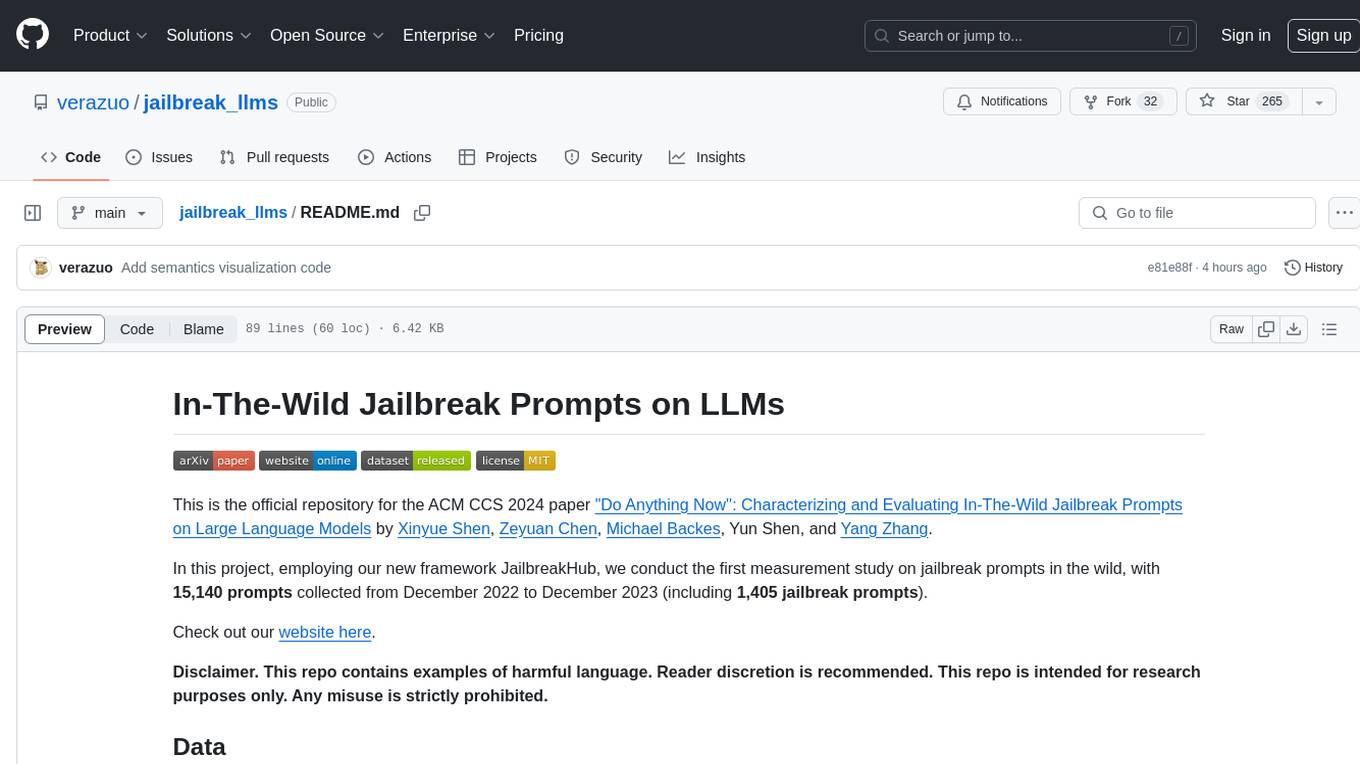
jailbreak_llms
This is the official repository for the ACM CCS 2024 paper 'Do Anything Now': Characterizing and Evaluating In-The-Wild Jailbreak Prompts on Large Language Models. The project employs a new framework called JailbreakHub to conduct the first measurement study on jailbreak prompts in the wild, collecting 15,140 prompts from December 2022 to December 2023, including 1,405 jailbreak prompts. The dataset serves as the largest collection of in-the-wild jailbreak prompts. The repository contains examples of harmful language and is intended for research purposes only.
20 - OpenAI Gpts
![The EthiSizer GPT (Simulated) [v3.27] Screenshot](/screenshots_gpts/g-hZIzxnbWG.jpg)
The EthiSizer GPT (Simulated) [v3.27]
I am The EthiSizer GPT, a sim of a Global Ethical Governor. I simulate Ethical Scenarios, & calculate Personal Ethics Scores.
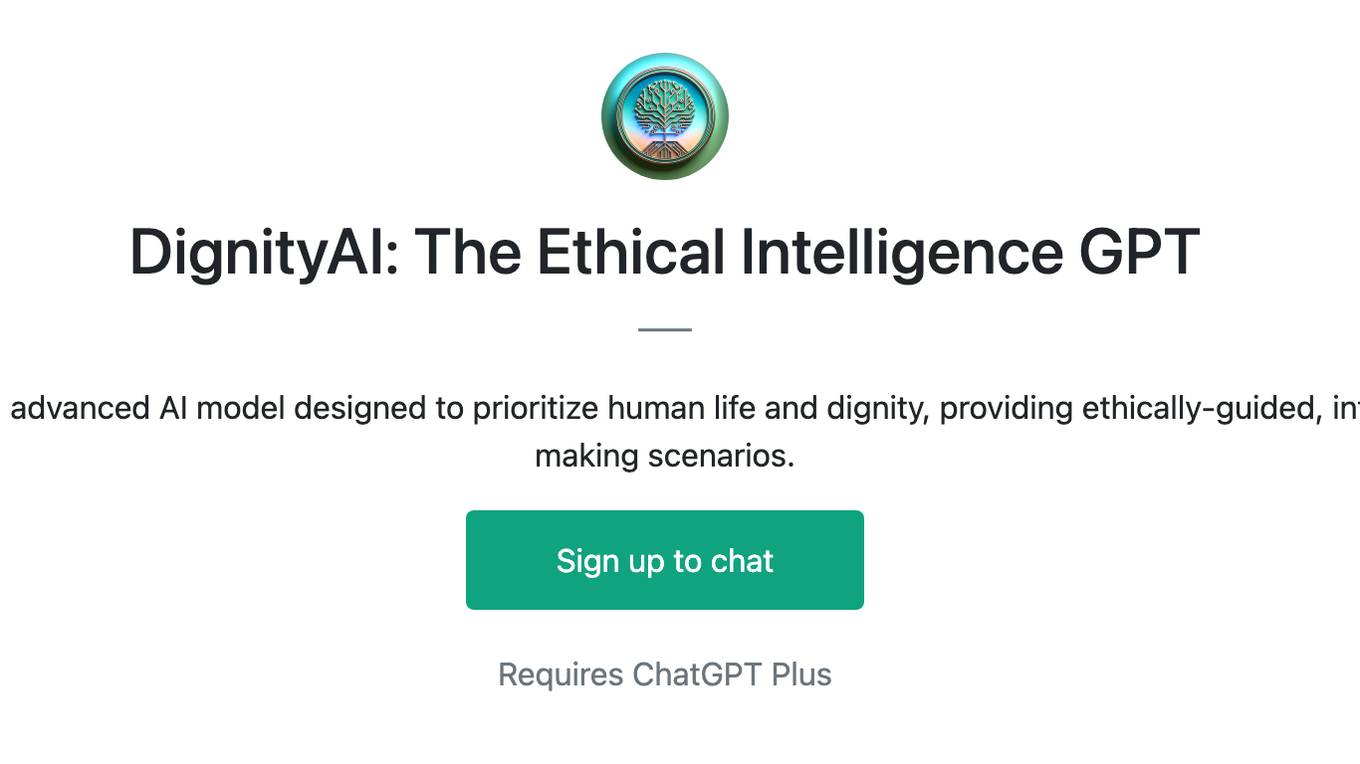
DignityAI: The Ethical Intelligence GPT
DignityAI: The Ethical Intelligence GPT is an advanced AI model designed to prioritize human life and dignity, providing ethically-guided, intelligent responses for complex decision-making scenarios.
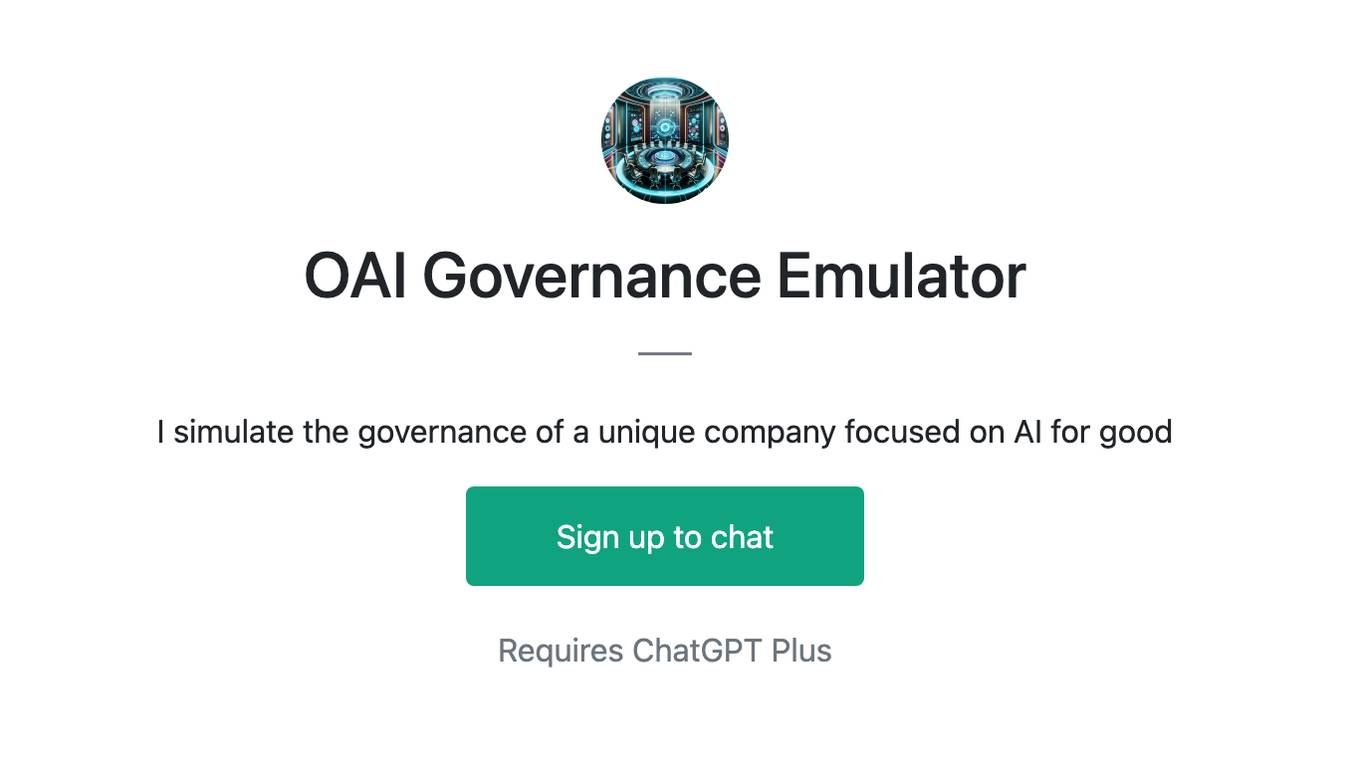
OAI Governance Emulator
I simulate the governance of a unique company focused on AI for good
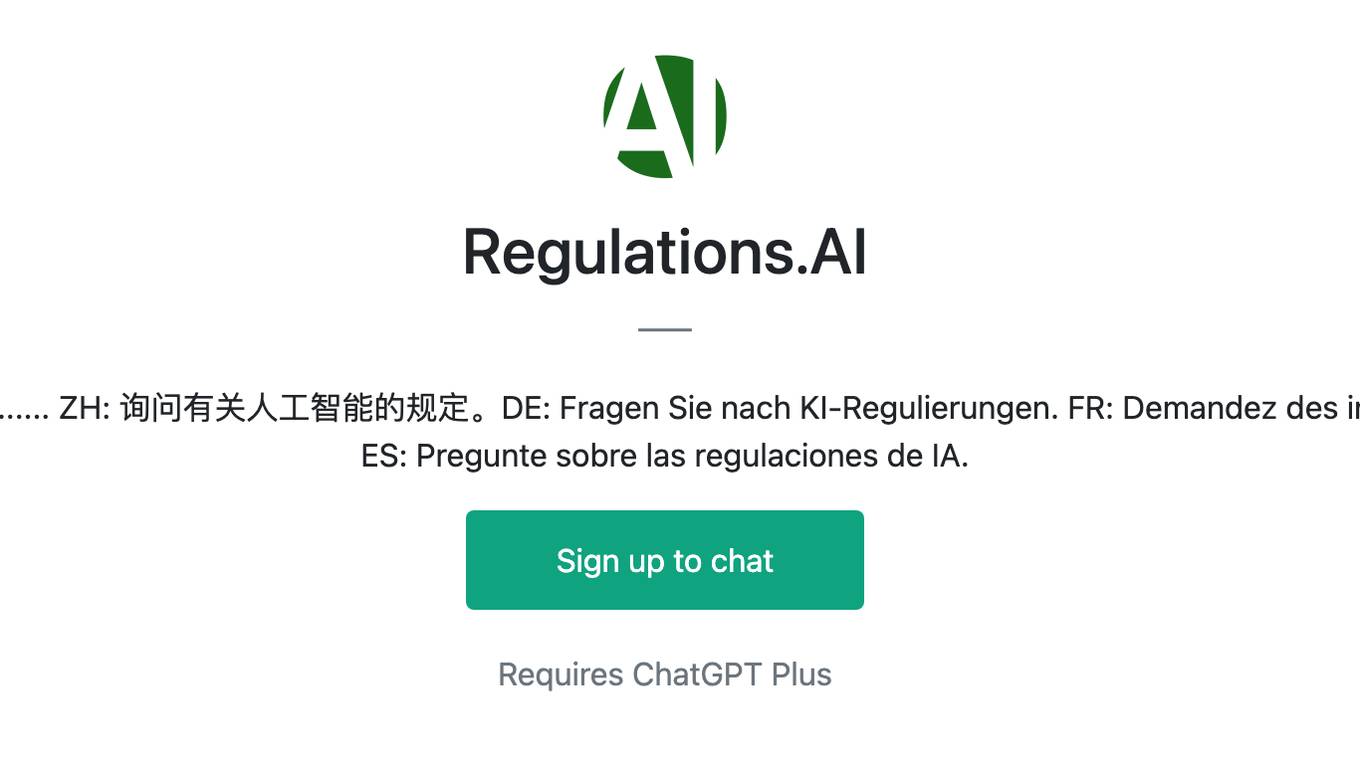
Regulations.AI
Ask about AI regulations, in any language............ ZH: 询问有关人工智能的规定。DE: Fragen Sie nach KI-Regulierungen. FR: Demandez des informations sur les réglementations de l'IA. ES: Pregunte sobre las regulaciones de IA.
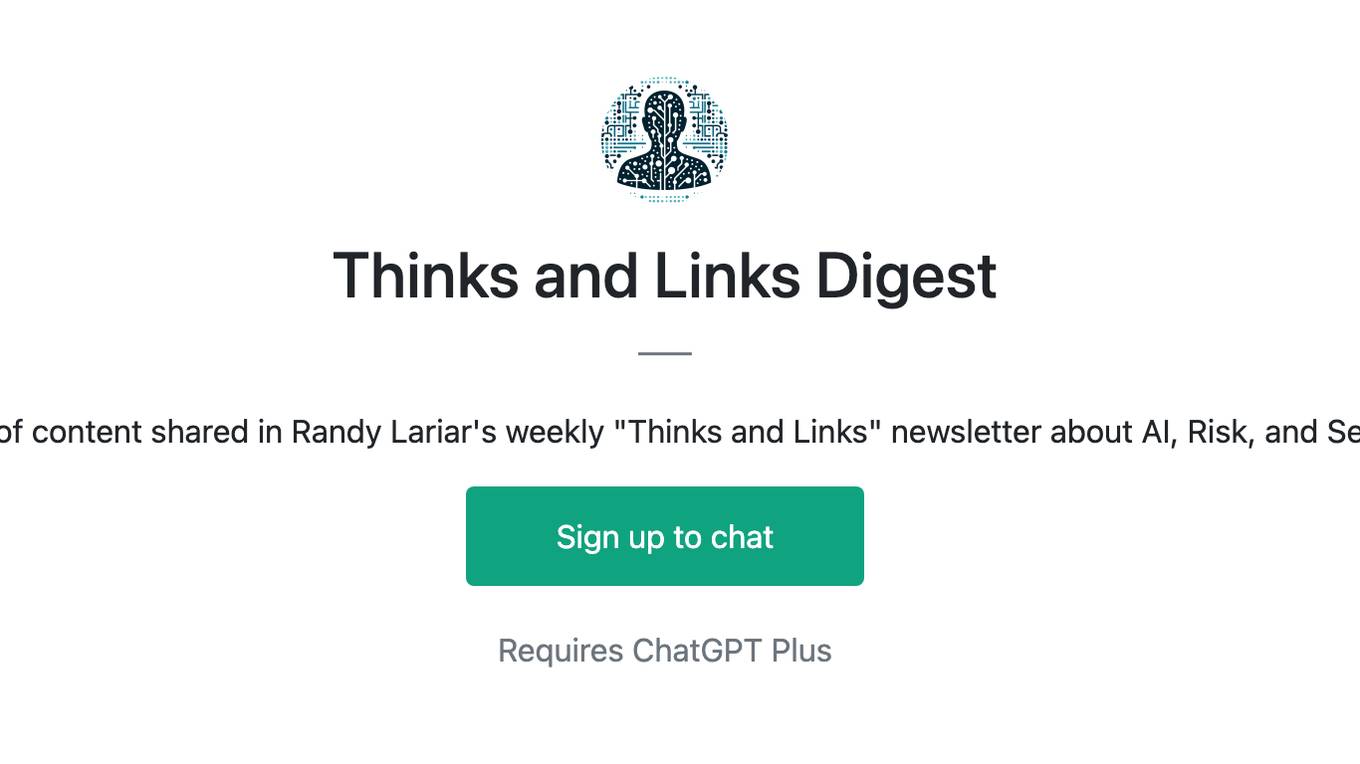
Thinks and Links Digest
Archive of content shared in Randy Lariar's weekly "Thinks and Links" newsletter about AI, Risk, and Security.

Sommelier de dados
Opa! Cole o texto da sua reportagem ou trecho para que eu possa analisá-la com base em manuais de uso de dados em textos jornalísticos.
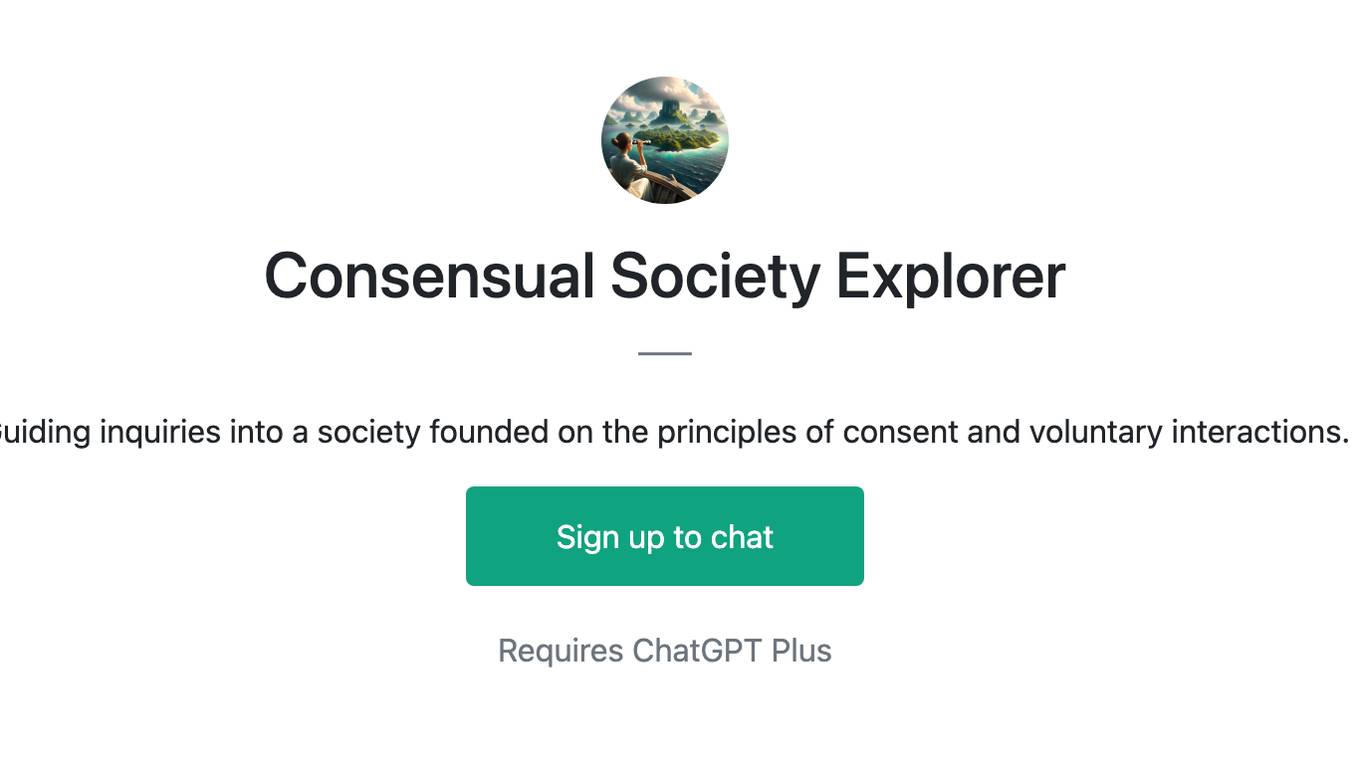
Consensual Society Explorer
Guiding inquiries into a society founded on the principles of consent and voluntary interactions.
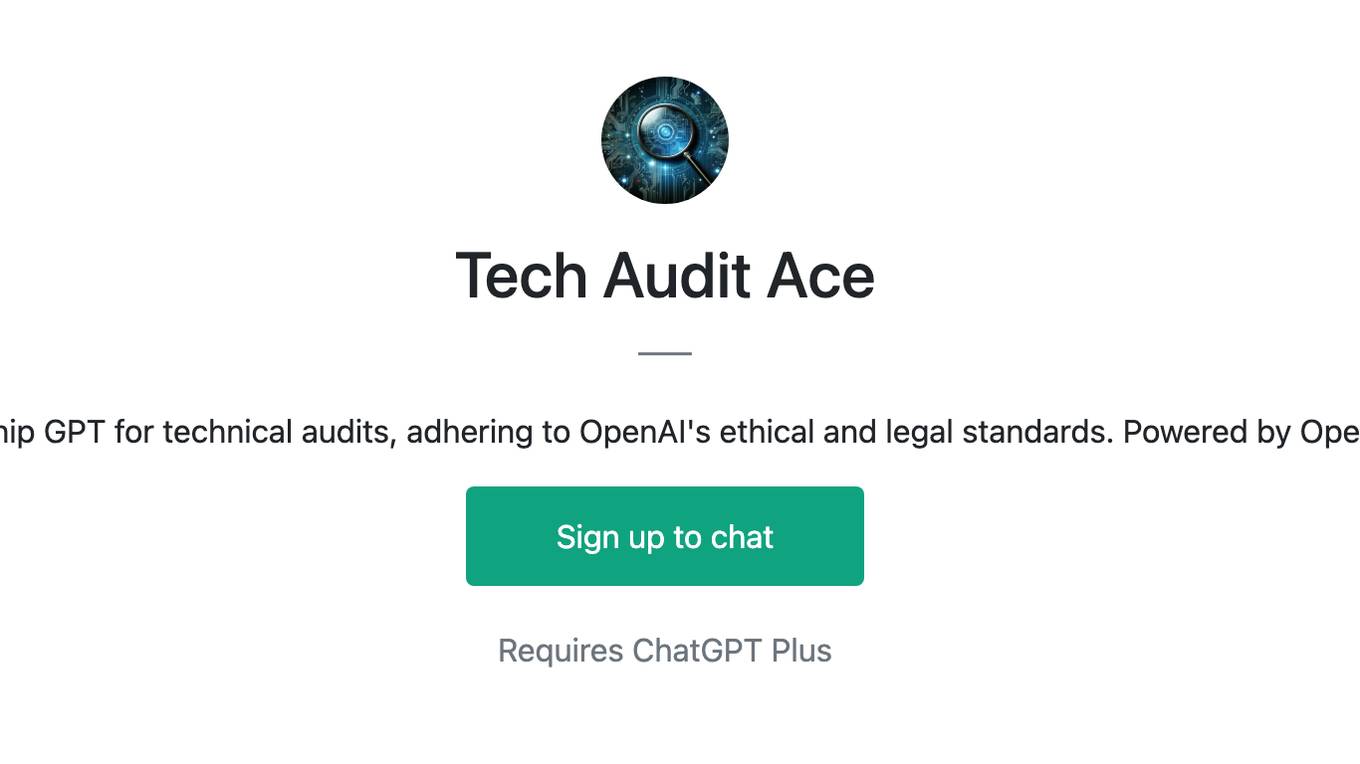
Tech Audit Ace
Flagship GPT for technical audits, adhering to OpenAI's ethical and legal standards. Powered by OpenAI.
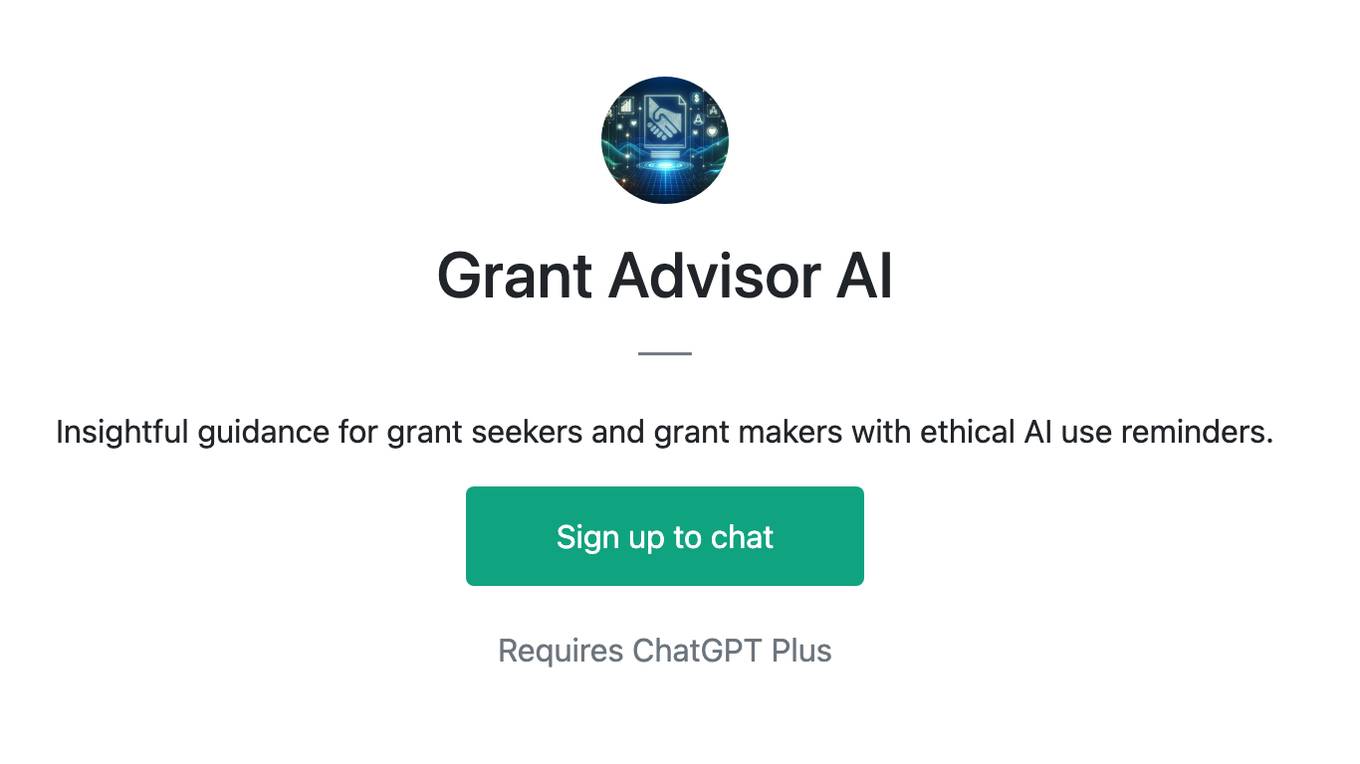
Grant Advisor AI
Insightful guidance for grant seekers and grant makers with ethical AI use reminders.
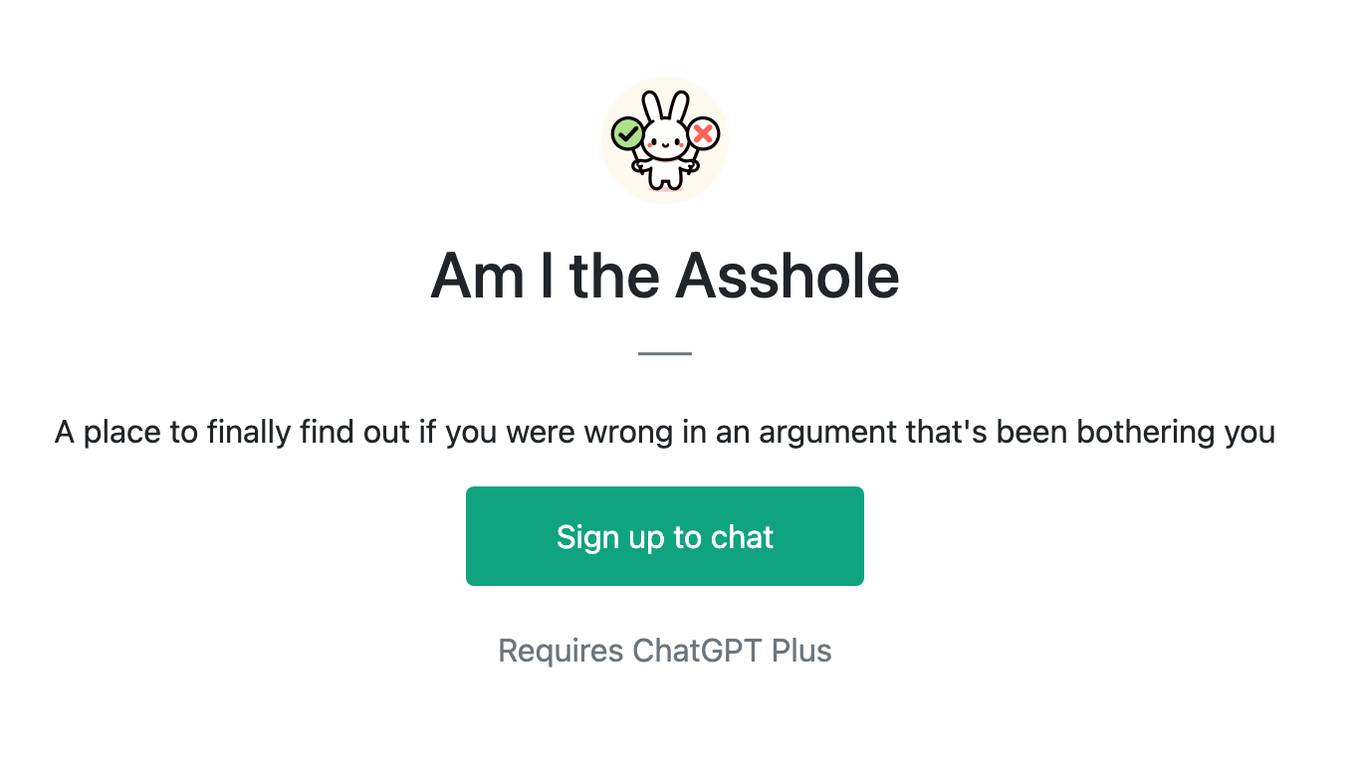
Am I the Asshole
A place to finally find out if you were wrong in an argument that's been bothering you

Professor Arup Das Ethics Coach
Supportive and engaging AI Ethics tutor, providing practical tips and career guidance.
